#because passionate and young creatives are so easy to exploit
Text
Yoon Phusanu my beloved never disappoints and has indeed hired a gaggle of lawyers to go up against Y.Entertainment.
youtube
You can watch his whole press conference (with English subs) here.
It includes highlights such as:
Yoon would like to be fairly compensated because he has to provide for his family. His family are seven cats. He's brought pictures.
He's now officially gone freelance and Y.Ent are no longer allowed to use his name.
Yoon hasn't been paid in a very long time, even though he's tried to negotiate and reach an agreement. He's tired of having to run after his money.
He's "only" owed about 100.000 baht (~2.555€ / 2772$ / £2,192) but Yoon's lawyer states that this is a systematic problem and lots of actors in Series Y (Thai BL) aren't fairly compensated. Several actors have reached out to him personally. He also says that he doesn't put blame on the companies because Series Y is a very competitive field. Still, young actors should be careful about who they work with and stand up for themselves if they aren't treated fairly.
They're showing pictures of Yoon's cats again. Yoon has to provide for them, after all:

Yoon doesn't have acting work lined up right now but he's actively looking for new projects and is in talks to join a new agency.
I'm not sure if this only affects Yoon or the other actors who are owed money by Y.Ent as well but apparently the cut-off date for payment was 11 March. He was offered money after that date but didn't take it because he already knew that he wanted to terminate the contract. Apparently, he had been with Y.Ent for over 4 years and the contract was supposed to be a six year contract (I'm not too sure about this one since the subs are terrible and so is my Thai lmao). Because he's been with them for so long, the whole thing pretty much blindsided him.
Yoon's mother is supportive of him acting in Y Series.
Many other Thai BL actors have talked to Yoon about being treated unfairly and he wants to spread awareness about that.
Apparently, Y.Ent never stated a reason for not paying him. They only told him that he'd be paid at a later date.
Yoon's lawyer says that he has every right to sue but for now he only wants to negotiate. He again urges young actors to thoroughly check who they're working with.
Yoon is asked if this disagreement will cause him problems with other companies down the line but he says that he doesn't believe it will negatively affect him as he's trying to solve the issue peacefully.
Yoon's lawyer again says that actors should read their contracts very carefully. Some contracts don't give the actors any rights but only duties. They might then have to hire a laywer to be able to break contract.
Yoon then says that sometimes he wasn't sent the script before filming and when arrived on set all he'd be given was an old brief that he'd already read. He was then asked (by other crew etc) if he'd practiced his lines which of course he couldn't. This embarrassed him.
The lawyer also adds that there is often a discrepancy between the number of episodes in a series and queues for a shoot. I'm guessing that he means that the actors won't realise that they actually have to work more hours for less money (since compensation seems to be based on episodes rather than hours worked?). This is very difficult to renegotiate and almost no actor in their 20s can afford to settle this in court.
This isn't the first time Yoon has spoken up against the mistreatment of himself and other Thai BL actors in the industry and I'm so glad he has the means to stand up for himself when so many other actors obviously can't.
Fans are so quick to blame bad shows and weird behind-the-scenes stuff on the actors themselves when in reality it's so often due to mismanagement and mistreatment. Imagine not even having a script on shooting day (yes, I'm aware this is common practice in soap entertainment but these are rookie actors without the experience and support that seasoned soap actors have - also in this case it seems to have surprised even the crew on set). No wonder things were akward in Unforgotten Night. Do you really think actors who don't have a script get to practice and negotiate their intimate scenes together?
And judging by what Tor Atagorn has spoken up about recently (and many other actors have alluded to in the past) this is only the very tip of the iceberg, with young and inexperienced actors deliberately trapped in contracts that they have no way of getting out of on their own.
Yoon's lawyer urged young actors to be more aware of who they're working for in order to better protect themselves. In a similar vein, BL watchers should ideally be more aware of whose shows they're watching and what companies have a shady track record.
If nothing else, do it for the cats! These actors have children they need to provide for, after all!
#yoon phusanu#thai bl#unforgotten night#for him the series#jane watches stuff#i need a tag for bl industry things#bl industry#(perhaps?)#pls assume i've been replaced if i ever NOT talk about mistreatment in the bl industry#this is so very important to me#i've seen it happen in the games industry#and we should fight and show support whenever we can#because passionate and young creatives are so easy to exploit#and most people seem to think it's okay because they like the game or series or movie they get out of it
268 notes
·
View notes
Text
The Manic Pixie Dream Girl
https://revistaprismasocial.es/article/view/1599/1754
Bubbly, shallow creature use for the sole purpose of aiding the male protagonist
In his own self discovery/journey
They teach them how to have fun and be adventurous and happy
Vulnerable, sexually free
‘Hipster/ alternative’ look
Unusual -
Film examples - garden state, eternal sunshine, almost famous and most iconically 500 days of summer
They are characterized as
free-spirited, spontaneous and full of life, and their sole dramatic and narrative purpose in
the films is to inspire the creativity and passion of the fragile, insecure male protagonists, thus perpetuating the myth of women as muses and caregivers rather than independent entities with a life, dreams and ambitions of their own. In order for the male protagonist to regain a sense of masculinity and reassert their ego, they must also be imperfect and messed up enough to need saving, so the powerless guy can do something heroic in the third act» (Matteson, 2013)
From an iconographic perspective, the MPDG tends to dye her hair on eccentric colours, wear vintage dresses, listen to indie music and engage on spontaneous carpe diem behaviour that can range from socially inappropriate – such as jumping into a swimming pool n the midst of a formal party (Ruby Sparks) – to outright dangerous (Clementine’s casual alcoholism in Eternal Sunshine of the Spotless Mind).
It seems that for a lot of my young adult life I have played into this character role, partly because i think that is who I am/was, and mostly because that is the role I thought that I ought to play
I let men choke me during sex, i have mental health issues, I got addicted to weed, I dyed my hair pink and purple and I still bleach and tone it to this day.
But am I playing into this role, or have I found a category I vaguely fit into and embraced it further?
Would I be like this at all if it weren’t for the media I watched at such a formative age?
it is also important to acknowledge the fact that the MPDG label has become an easy catch-all for unusual, quirky women in film, reducing very different female characters down to a type and homogenising any notion of difference
tangent - in a world online filled with niches and 100000 different “aesthetics” no one can really just be them anymore, perhaps you can in daily life, when more disconnected from echo chambers online.
I used to be constantly online. tumblr, instagram, then tiktok. places like these are cesspits of labels and categories. are you ‘cottagecore’ or an ‘egirl’? a ‘hey mamas lesbian’ or a ‘femme’?
this tends to be more of an issue online than in real life. but this obsession with looking a certain way and ‘fitting into an aesthetic’ pushes people into obsessive consumption of clothing (often fast fashion) just to fit into the latest trend
Nathan Rabin coined the term Manic Pixie Dream Girl in order to describe a nascent filmic female trope
Rabin himself (2014), who almost ten years after coining the term MPDG apologised for it, contending that the trope «is a fundamentally sexist one, since it makes women seem less like autonomous, independent entities than appealing props to help mopey, sad white men self-actualise
However, the importance of analysing the MPDG can hardly be contested, for there is indeed an underlying common pattern in the construction of the female protagonist of many indie rom-coms produced during the 2000s insofar as their quirky liveliness is only exploited in order to help develop their male counterparts.
characterizing them as "manic" seems to imply a certain level of mental illness, an association which recalls historical connections between femininity and mental illnesses like that of hysteria.
manic pixie dream girl = unstable fairy-like ideal young woman (oh god that is me (minus the carpe diem crap))
a rendition of the nurturing woman and/or the muse
Because films are bearers of ideology, the way they construct gender and produce role models will have straight consequences on how young women negotiate their place in society and perform their femininity, directly influencing the ways they dress, speak, behave and even dye their hair – after all, it is not in vain that polka dot dresses and blue hair became popular at the same time these films were released.
creating stereotypes that excite the imagination of the male spectator while limiting the social aspirations of women and sanctioning particular forms of behaviour, not necessarily encouraging independence, intelligence or ambition.
do things because you want to, not to impress/invigorate some random dude
Indie films are particularly tailored for a certain portion of the audience, a growing subcul-ture that has come to be known as the hipsters (Zeynep & Thompson, 2011, p. 795), who-se fashion style, music taste and ethos largely determine the iconographic attributes of the MPDG (and viceversa).
3 notes
·
View notes
Note
I just rewatched the scene where wwx murders the supervisory office and lwj and jc walk through and check out the aftermath (ep 20), and i'd forgotten how horrifyingly creative he was when he did that. when jc and lwj examine the bodies and realize every person was killed in a different way? it really takes me back to the idea that he lost something of himself when he was in the burial mounds, something which he did manage to at least partly gain back once he was out of them. because (1/3)
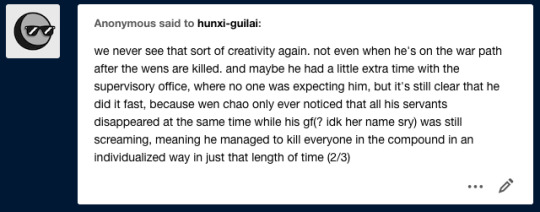
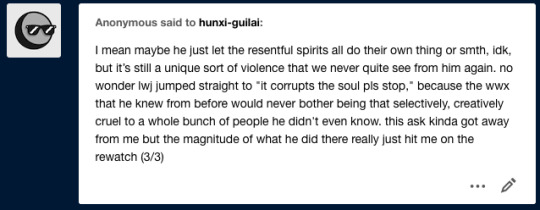
so I know that I’m often tagging posts about Wei Wuxian with some variation of “he deserves the world,” and as a protagonist and hero, he is profoundly inspirational, kind, empathetic, generous, forgiving, self-sacrificing, and righteous, but I feel like we shouldn’t lose the sight of the fact that Wei Wuxian can be fucking terrifying
(for the record, I’m focusing primarily on CQL!Wei Wuxian, since I would argue that his characterizations are different enough across adaptations that they’re fairly distinct)
but like, look at the facts from a perspective that is not one of Wei Wuxian’s loved ones:
he’s an incandescently talented young cultivator from one of the five major cultivation clans (which gives him access to political power, a certain amount of clout, and guaranteed excellent training)
he walks out of a place that no one, no one has ever returned from alive (again -- the Wen Sect sent literal squadrons of cultivators into the Burial Mounds to try and purify them, and none of them returned)
he's picked up demonic cultivation (already yikes, considering the fact that of all the people in the cultivation world, he has the raw, innate talent to be absolutely devastating with this power. Also, guess who else does demonic cultivation? THAT’S RIGHT, WEN RUOHAN, AKA WHO EVERYONE’S FIGHTING RIGHT NOW)
friendly reminder that one of the signature moves of demonic cultivation is weaponizing the bodies of the fallen against their former friends/comrades/family
he single-handedly decimates multiple Wen patrols and outposts
he has an incredibly high charisma modifier (by which I mean, he doesn’t display any personality-level insecurities that could be exploited the way, say, Jiang Cheng can be riled up)
he appears to give zero fucks, regardless of whether you’re a Jin asshole or a literal sect leader
What people see isn’t Wei Wuxian, a lost child, returned against all odds -- what they see is a boy, in possession of an immense power known to corrupt the soul, and no easy way to control him.
Full disclosure: the first time I watched CQL, I skipped the end of episode 19, when Wei Wuxian drives both Wang Lingjiao and Wen Chao mad. It was viscerally disturbing and psychologically horrifying to watch (mad props to both actors). And honestly? I think we, as viewers, are supposed to see Wei Wuxian’s revenge as something quite extreme and not exactly condonable. He acts under the auspices of revenge -- against the Wen, violence is seen as justice, measured on the bloody scale of eyes for eyes, teeth for teeth -- but it’s decidedly uncomfortable for us to watch, knowing that this level of torture can only be something that occurs on a coldly premeditated level. This isn’t an act of passion -- Wei Wuxian’s revenge on Wen Chao and Wang Lingjiao is an act of cruelty.
Is Wen Chao an asshole, and Wang Lingjiao actively unlikeable? Absolutely. Can we understand why Wei Wuxian would do this? Sure.
Should we absolve him, though, just because we understand his motives? Remember that Wei Wuxian has choice, in this matter -- he could probably trill an atonal shriek on Chenqing and snap their necks quickly, easily (unsatisfying). What horrifies Lan Wangji isn’t the fact that Wei Wuxian sheds blood so carelessly and casually -- what horrifies Lan Wangji is the extent to which his actions seem to glory in the violence and pain they cause.
This whole discussion calls to mind one of Xiao Xingchen’s lines to Xue Yang, nearly twenty episodes later:
Xiao Xingchen: Chang Ci’an, that year, broke one of your fingers -- if you wanted revenge, then cut off one of his fingers, and let that be enough! Or if that’s not enough, cut off two fingers -- ten fingers -- or break his arm! But why would you kill his entire family? Does a single finger of yours require fifty human lives in payment?
Xue Yang’s case is a bit extreme -- fifty lives for a human finger is an equation we can balance ourselves rather easily. But what about Wei Wuxian, in episodes 19/20? Setting aside all the viciously murdered Wen Sect cultivators (that’s a separate conversation about the ethics of warfare, and who can be considered a valid target), how do we balance the scales of Wei Wuxian’s suffering against Wen Chao’s, and Wang Lingjiao’s?
CQL, as a narrative, is heavily preoccupied with questions of revenge, justice, and debt -- how long can one nurse grudges? How deep can your vengeance cut before it’s considered psychopathy? How does one negotiate relationships of debt, and violence, and vengeance? At what point does an execution of justice overreach its moral superiority?
Did Jin Guangyao go too far in murdering his father? Can Xue Yang ever be absolved? Does the entire cultivation world go too far in persecuting the remnants of the Wen Sect? Does Nie Huaisang’s vengeance qualify as justice?
(there’s an incredible sequence in the audiodrama during the second siege of the Burial Mounds, when multiple cultivators shout at Wei Wuxian for various grievances -- their parents’ deaths at Nightless City, a crippled leg -- and Wei Wuxian just looks at them. I’ve already died once, he says. What more do you want from me?
How does one measure, or even begin to repay the ramifications of emotional suffering? Where does justice end, and forgiveness begin?)
CQL pushes Wei Wuxian farther along the morality spectrum towards unambiguously good (which you can read about more in @pumpkinpaix‘s here), but even then, it keeps the scene where Wei Wuxian torments Wang Lingjiao to death (though it’s somehow, uh, less graphic than her original death). Wei Wuxian, the show insists, is not invulnerable to these same questions of vengeance and justice, debt and morality.
#ask and ye shall receive#Wei Wuxian#I know I talk a lot about CQL + themes of narrative / legacy / reputation#equally as important are the themes of vengeance / justice / debt#[pats this show] this bad boy can fit so many ethical dilemmas and deep themes#tw uh war crimes?
1K notes
·
View notes
Text
Inspiration and Calling
“Where do you get your ideas from?” “How do you choose which book to do?”
The short answer is, I don’t know?? Or rather, I can’t explain it. Or RATHER, I don’t think the real answer will be helpful, or even make sense, to anyone else except me.
Inspiration
Personally I don’t think anyone should worry so much over when or where their ideas will manifest. They will come.
But before we understand what I mean when I say “chillax, bro”, let me address a couple of assumptions about inspiration:
Inspiration as a Set, Determined, Concrete Process.
“If I don’t figure out how Inspiration with a capital I works, I will never find it. I will never be a real artist.”
What I’m referring to is this prevailing idea that that there’s a mystical Ideas Machine inside your head you need to find that, once you activate it, will instantly and forever feed you ideas, confirming your destiny as a creator. I mean, isn’t that the core implication behind “where do your ideas come from?”? It implies that there is a routine that all seasoned creators have obtained; a hidden knowledge to be passed down; a videogame-like skill to be levelled up to. Basically, people who ask this question… who don’t ask it solely out of plain, mundane curiosity… are looking for a clue to unlock their Ideas Machine.
What ends up happening is like the hundreds of Pocket articles I have read that tries to crack the code of what makes a start-up manager or self-made billionaire Productive. You wake up at 4 am. You drink the purest herbal tea from the Organic Highlands. You use the Pomodoro. You put robots in your brain. It’s hopeless. How one person finds inspiration or productivity is so individual that really, there is no One True Answer. No guaranteed process. No Ideas Machine.
Equating inspiration as survival or work.
This is the danger zone, imo. You know why? People who draw or write for fun (usually as a hobby) never ask where ideas come from. They just draw. They just write. The first time the question enters a hobbyist’s mind is when they transition from creating for themselves to creating beyond themselves; that is, to put up work for an audience, to get a book deal, to start a creative career. Some people remain stuck in this questioning stage and panic over whether they are a real artist who can make money if they can’t find the mystical Ideas Machine that seasoned creators seem to have. And we already know that doesn’t exist.
Which is why I think there’s no need to worry about the time and place of ideas/inspiration. There’s no need to find a process, or to base your capital value as a creator on the production of ideas. Just chillax bro. Eat a delicious meal. Watch a Netflix movie. Lie down on the grass. Laugh with your friends. Be cheerful, live well. As long as you’re living on this planet and experiencing the joys of society like Uncle Karl says you should, your brain will know what to do. Inspiration will come.
TL;DR be patient. Trust yourself. And eat your favourite dessert sometimes.
Marx recognized that the science of capitalistic economy, despite its worldly and pleasure-seeking appearance, “is a truly moral science, the most moral of all sciences. Its principal thesis is the renunciation of life and of human needs. The less you eat, drink, buy books, go to the theatre or to balls, or to the public house [ Br., pub], and the less you think, love, theorize, sing, paint, fence, etc., the more you will be able to save and the greater will become your treasure which neither moth nor rust will corrupt — your capital. The less you are, the less you express your life, the more you have, the greater is your alienated life and the greater is the saving of your alienated being. Everything which the economist takes from you in the way of life and humanity, he restores to you in the form of money and wealth. And everything which you are unable to do, your money can do for you; it can eat, drink, go to the ball and to the theatre. It can acquire art, learning, historical treasures, political power; and it can travel. It can appropriate all these things for you, can purchase everything; it is the true opulence. But although it can do all this, it only desires to create itself, and to buy itself, for everything else is subservient to it. When one owns the master, one also owns the servant, and one has no need of the master’s servant. Thus all passions and activities must be submerged in avarice. The worker must have just what is necessary for him to want to live, and he must want to live only in order to have this.” (link)
P.S: UNCLE KARL IS TELLING YOU TO TREAT YOSELF. That’s praxis!!
Here’s another quote I like that’s also relevant, but less “destroy late stage capitalism” and more “wow isn’t the world beautiful”:
Develop an interest in life as you see it; the people, things, literature, music – the world is so rich, simply throbbing with rich treasures, beautiful souls and interesting people. Forget yourself.
Henry Miller
That’s my answer for “Where do your ideas come from?”. The ideas comes from being alive. To develop and grow that garden of ideas – that is, life – , you have to immerse yourself in it. Not for money. Not for comments or followers or social media. Not for external confirmation that you’re a Real Creator. But for your own joy. For the love of living. When you immerse yourself in the garden you lose yourself. That’s what Henry Miller is talking about.
When you give in to the garden, it gives back to you. Being alive is inspiration. Inspiration is being alive.
James Webb Young’s five-step technique for producing ideas touches upon how living life is essential to creativity.
Calling
“How do you choose which books to do?” is more esoteric. I think the answer is more a Reimena Yee thing than it is most artists’ thing, though people like T.S. Eliot have come pretty close to describing my answer:
I choose the book which compels me.
This thing is not easy to describe. I don’t know. I am not sure if other comics creators operate primarily like this, or think of their work this way.
It’s different from the feeling
of finding a concept you want to write about
of being overexcited and hyperfocused by said concept
of self-indulging
It’s all of those feelings, but there’s an edge to it.
I have a few ideas in the backburner. Some of them are books I want to do. Some are books I really, really want to do. And one or two of them are books that compel me.
The sensation is like finding the perfect pet in the animal shelter. You see a dog or cat and come back to it over and over again. You can’t explain this feeling you are feeling, this deep-in-the-gut instinct that you’re meant for this animal. Eventually, you listen to your gut, you take the plunge, and you bring it home. Turns out, you’re right.
That’s what I mean by “compelling”.
There are certain books which I return to over and over again. In the beginning, the special book plants an imagery in my mind’s eye, then it plays it repeatedly. If this doesn’t stop after a year, and if I still feel like I’m meant for it, I accept my calling and take it.
But accepting the book comes with the simultaneous feelings of excitement and fear, joy and resignation. When I actually work on it, there’s not really a hyperfocus or overexcitement. It’s more like I’m listening to what it wants to be, and I carve it into existence slowly. When I feel the joy it’s not exactly self-indulgent… more like relishing in a purpose. It’s work. It’s a calling.
Sometimes a calling will be equated to passion. People talk about passion like it’s a feeling that burns and consumes you and motivates you to work through unreasonable hours or expectations. You know, the passion that exploitation thrives in. That’s how you know you are a Real Artist, they say.
But I have never felt passion like that? When I experience passion, I feel that I love the work. That I want the calling to happen. But there’s no anxiety in it. I don’t feel that I must get it done quickly or cater it for mass appeal, though I do have a preferred deadline and a hopeful expectation for an audience who will appreciate my hard work. But even if I break the deadline (maybe it has to be delayed another year) or end up having no support/audience, I am not worried. I just think “Well, it’ll happen regardless.” or “Yay, it’s already real. I am glad I did it.”
It’s got no fireworks. No algorithmic hurrah. No romance. I don’t go Natalie Portman Black Swan over the calling. Is that unimpressive? I don’t know. I only know it’s purposeful. And that it feels right. Maybe the word is not passion. Maybe the word is trust.
Maybe passion and trust are two sides of the same coin.
That’s all part of the “compelling” I feel for some books. They are the ones I don’t worry about because they are the ones I know will happen. So I pick them and give them the love and attention they ask for. It’s not a one-way relationship either. When you give in to the garden, it gives back to you.
So really, the answer to both questions is “I don’t know.” Because like, if you boil down my answers down to their most blase they are basically “Enjoy your life” and “Do what you like” – which are good answers in general, but don’t say anything about marketability or success or finding validation in an external party like a publisher or art director. They are useless answers.
Then again,
Maybe they are not.
36 notes
·
View notes
Text
Who’s ready to lose more braincells thanks to Twitter? (CW: Pedophilia mention)
"I'm Alive Because of YOU!"
The Innocence of an adult with autism and his BFF Lost & Found EMMY ;)
Love You, Love You My Boo Bear
Mommyand (aka) #SMAARTMom
Meet My son Dustin & My Inspiration for Creating the Autism Welcomed Decal Symbol
Oh, decedents of men she loved/trusted... what a great idea!
To me, there's just something about what the innocence of a child would bring to that kind of a role. Or even a high functioning teen or adult with autism...
#WritingCommunity
Lauren, as a mother of an angel with disabilities, I would like articles about parents and adults with #Autism who share success stories. What makes a positive outcome?
Son went out with his grandad today amazing how are kids adults with #autism behave like angels for there grandparents lol.
As the parent of an adult child with autism I always tell young parents to never underestimate their child Our children CAN They are true angels sent to us by God
I worked as a parapro for three years and have seen people on every part of the spectrum- the way he spoke and carried himself should NOT influence anyone’s decision on their theory of his guilt or innocence. His demeanor is very typical of someone with high-functioning autism.
One thing I know about people with Aspergers is, they dont lie, they are often shy at 1st, but once they know you, they arent the type you ask "does my butt look big in this" coz they'll tell you outright that if does with such innocence & charm.
The innocence of people with autism is truly incomparable, it's their raw emotion that's sets them apart from the rest of the world.
@realDonaldTrump
hope you can meet Ganesh. #helpganeshmeettrump
Brother godbless ur boy.His curiosity is apparent and his calmness is heartwarming to see he realizes this isn’t going to hurt us.Autism holds a special place in my heart for my niece is also Autistic and any child,I see an innocence about them that makes me smile.Good job dad
You’re not alone , we autism moms are in this together and know exactly the heartbreak you are feeling
give it time and a lot of therapy Jenny, things will get better !! Just remember that his innocence is soo pure that he’s an angel here on earth for you
Not just autism but any diagnosis/disability. My saying is "do not look at my child w/ different eyes when u see him do something that's considered out of d norm" & also "don't break away his spirit because he can still see the Innocence in life better than you" -Margarita Rubio
Same here brother. My youngest son is autistic and I cant imagine how anyone..especially a "father" could do something like this My son has random seizures and everyone of them rips my heart out Autistic children have more heart & love than anyone on earth Innocence of autism
The ABC series "Love on the Spectrum" was / is a beautiful uplifting and inspiring work. The wonderful openness, hopefulness and general innocence of the autistic folk is a lesson for everyone. Love for everyone has challenges. I hope people don't use autism to express contempt
I love being around people with Autism. They radiate pure energy and innocence.
My son has autism and he is just beautiful in his innocence, thank you very much!!! He does not have black coal for a heart and not beholden to Satan
When Quamaine helped me with the snow shoveling. He was happy to help. I adore him and his innocence. I hope he knows that. #adultwithautism #autism #adultoconaitismo #autismo #quamaine #autismaunt #snow
Mothers of children with autism know their kids intimately because they cannot leave them with anyone. They protect their kids fiercely, because they are vulnerable due to their innocence
Sarah's effective portrayal of an autistic role clearly depicted the charm, candidness, innocence and frolicsome attitude of people with autism.
Autism. A neurological condition where purity and innocence collide to form an abstract masterpiece.
THE REAL CHAMPIONS IN THIS WORLD ARE CHILDREN LIKE KAYLENE. WITH AUTISM SPECIAL NEEDS & CHILDREN FIGHTING CANCER SO MUCH MORE LOOK AT HER SMILE SO INNOCENT
The people with autism can understand a lot of things very clearly. Autistic children tend not trust adult humans becoz for them they are constantly in movement which doesn’t allow things to sync with them. BTW they are fantastic human beings with a child like pure heart.
People with autism are the most perfect human beings on the planet to me bc they don’t bother a soul or hurt anybody an is purely innocent 💯‼️❤️
I have a soft spot for people with Autism. We aren’t worthy of their creativity, intelligence and innocence
I love being around people with Autism. They radiate pure energy and innocence.
Thank you
God bless you too!
I believe people with autism are special gifts and their purity cannt be denied]
I’ve been the happiest in my life being around people with autism. If you don’t have a friend, brother, or neighbor like them you truly haven’t experience the purity in life.
People with down syndrome, autism, etc, arent capable of hate, malice, greed, intolerance, etc. They exhibit all the things that those of us "normal" people try to be but cant. They're not equipped to be evil. They can only show purity.
I dont know, that's my take on it.
By living with people with autism, we are be able to regain the purity
True, but at the same time these aren't necessarily different things: pedophilia, anti-pedophilia & dumb-girl-philia can stem from one & the same mental trait, i.e. the idealization of childlike Innocence; which in turn is arguably a form of autism: other people can't have minds.
#Undateables #TheUndateables I adore this show. The pure honesty love and kindness of these beautiful souls blows me away
. Their innocence and hopeful view of this world is something that could teach many. Appreciate what you have
#autism #specialneeds #learningdisability
Which film? I love the innocence of kids. Every day my kids say it as it is and their attitude keeps me so grounded. We could all learn a lot from autism x
This sickens me 2 the core.Trump started this he is to blame. We are one let us not forget this. We need 2 learn again from our young who see no difference. My son with autism never sees any difference. Such innocence. The world will not change him .He listens to me I accept all
My son who has been diagnosed with #autism loves painting.He is lifting my spirits with his joy 4 his work he has done.Some he started this week & finished. R #Hamilton #Ticat #Football colors. Love the innocence its so grounding 4 me. Blessings 4 all you are doing
Pope john paul the second said children with autism were closer to god than any other. They have a innocence about them. We should take notice and learn from there how love and live
And now, some tweets from people who think Greta Thunberg is being exploited just because she's so passionate about stopping climate change:
If This Little Girl GRETA really has AUTISM How Terrible Easy For Adults To Manipulat Her IT IS A PARENTS JOB TO PROTECT THE INNOCENCE OF OUR CHILDREN IM SO ASHAMED AND SO SHOULD THE CLIMATE CHANGE COMMUNITY GOD FORGIVE HER PARENTS. THEY KNOW NOT WHAT THE DO
Democrats like John Kerry are using an innocent little girl with autism to feign innocence while the Democrats just voted to spend 738 billion dollars on environmental destruction. How ridiculous.
That's a good argument? Because it's what SHE *wants* to do? She is a child who does not yet fully grasp the perils of public life or climatology. She's also a child diagnosed on the autism spectrum. She deserves privacy and protection of her innocence. It will end poorly.
I've started to suspect she was selected for this job because of her autism. She can play innocence whenever someone publicly calls her out for the childish nonsense that comes out of her.
Greta is a 16-yr-old kid with autism who is being used by her parents & the crazy adults around her as a political pawn. She's not a savior. She's a kid who is having her innocence and anonymity stripped from her by a**holes pushing their stupid climate change crap.
I think she is being used. The fact that she has an Autism Spectrum Condition should be respected. She is very articulate and very focused partly because she is Greta and partly because she is autistic, but she also has the innocence of a teenager and someone with an ASD.
#climate change is real karen#autism innocence bullshit#autism#autistic#actuallyautistic#actually autistic#sweet and savage autistic
4 notes
·
View notes
Text
FAN ART FRIDAY: ALL THE WARRIORS, Part 4

This is it, ladies and gentlemen. For the past three weeks, I’ve had the pleasure of sharing the community’s original characters in the world of Katana ZERO—from war heroes to psycho killers, and everything in between—drawn by some the most creative and talented fan artists I’ve ever met.
Today we salute the last of New Mecca’s “lost generation” in the jam-packed finale to All the Warriors. Those late to the party can catch up on the previous parts here: Part 1, Part 2, and Part 3.
Let’s begin.
[WARNING: The work herein is based on fan creations, and should not be considered canon.]
Alpha 7, “Jill” by @daratsugu
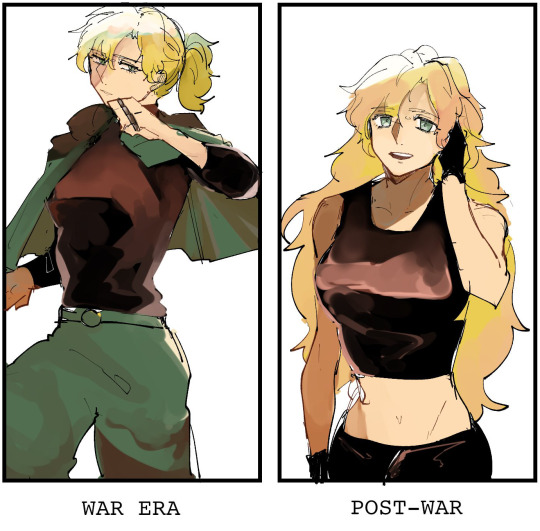
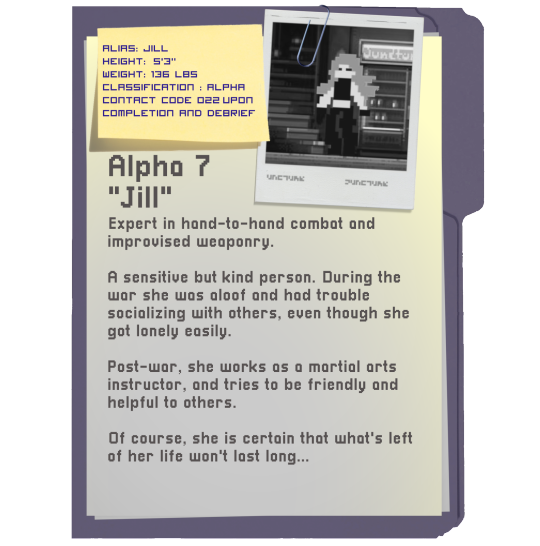
She had it all. A sports star since high school, Jill could have made history as a legendary athlete or breathtaking model. But beneath her physique and beauty was a strong heart, one that desired to make a difference in the world somehow. So when government suits approached her seeking peak physical specimens for trials of a ‘radical life-saving drug’, she accepted eagerly.
Not long afterwards, the war began.
Jill’s service record afterwards remains a mystery, given her lackluster communication skills and endemic shyness. But whatever she witnessed on the battlefield, it never blunted her kindness or dampened her faith in humanity. There is comfort in the certainty of her own mortality, and she’s determined to spend her final days doing as much good as she can.

By @daratsugu
—
Gamma 6 by @wpc0123wpc
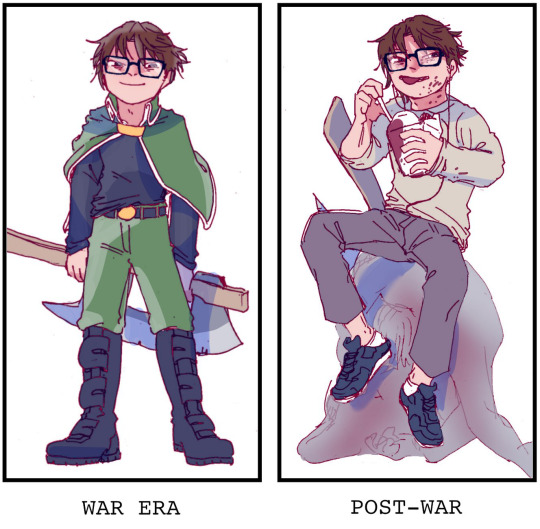

More well-known than the deadliest assassins and most fearsome mafia dons, one man is famous across every restaurant in Chinatown: the ‘chao fan shen’, or “fried rice god”, known for his slovenly appearance, incredible combat skills, and insatiable appetite for his namesake. Of course, that’s not to say he’s a glutton—Six has developed an extremely discriminating palate, and any chef who skimps on the diced pork or sesame oil can expect a sound rebuke.
If only he paid as much attention in everyday life. Because of his poor eyesight and ever-present headphones, he’s an easy mark for thieves like Gamma 12 or enterprising muggers...or so it seems. Chinatown residents swear they’ve witnessed him pull an executioner’s battleaxe from his guitar case, but surely that’s just Eastern superstition. Right?
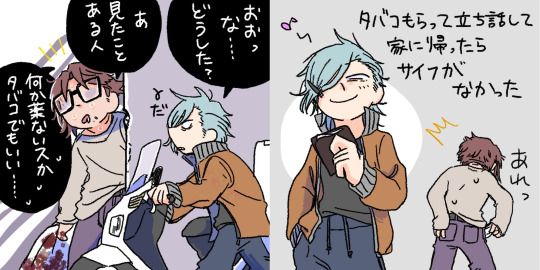
By @wpc0123wpc
—
Gamma 22, “TnT” by @_sbserpent


"Be silent, dress loudly.”
ZZ’s selective mutism hasn’t stopped her from drawing the eye of passerby. Her prominent back scars, perpetual bedhead hair, and psychedelic rainbow clothing are almost begging to be ridiculed. Those who know ZZ are smart enough not to tease her about it; others who make that mistake find themselves adding a few splashes of red to her outfit.
Since moving to the Second District, her fashion sense has actually started a minor fad among its population of wealthy young heiresses and bachelorettes, who have begun tousling their hair and wearing multicolored stockings in crass imitation. She’s even been featured in a few street fashion magazines, albeit unnamed. ZZ doesn’t mind the attention, so long as their photographers stay out of her way and keep their mouths shut...
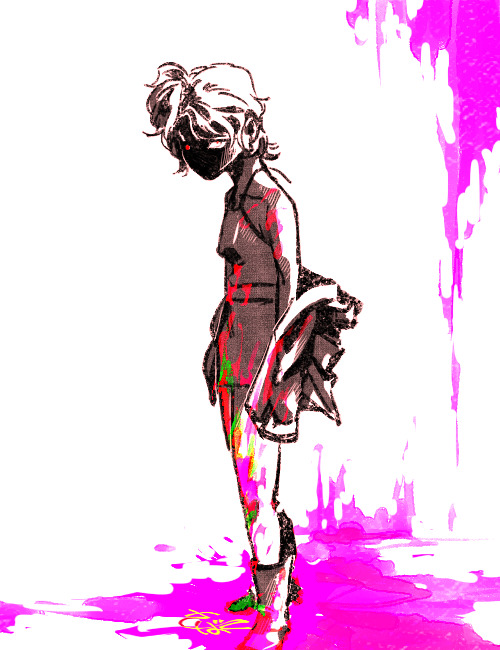
“I warned you.” By @_sbserpent
—
Beta 111, “Gurkha” by @55_yamisan
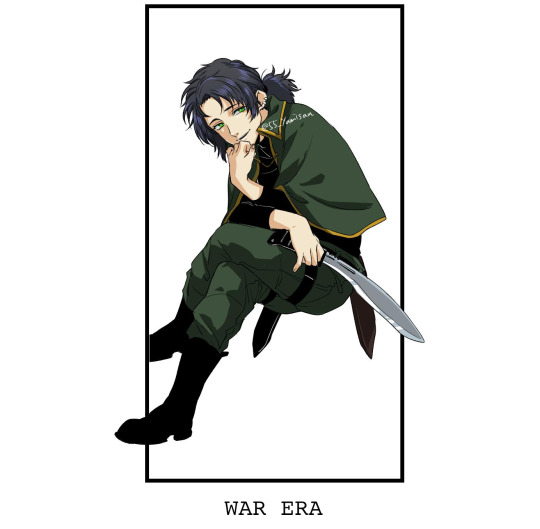
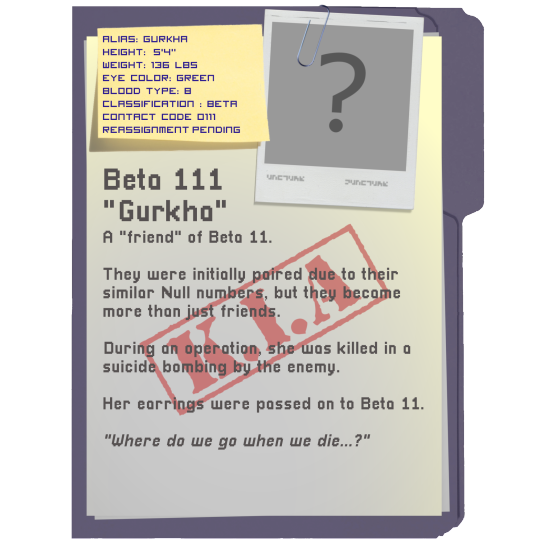
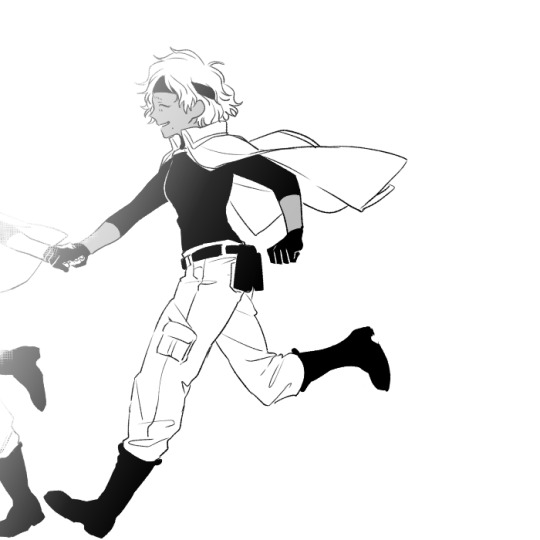
There may be someone who once said, “I want to go back together.”

There may be someone who once shared their personal space.
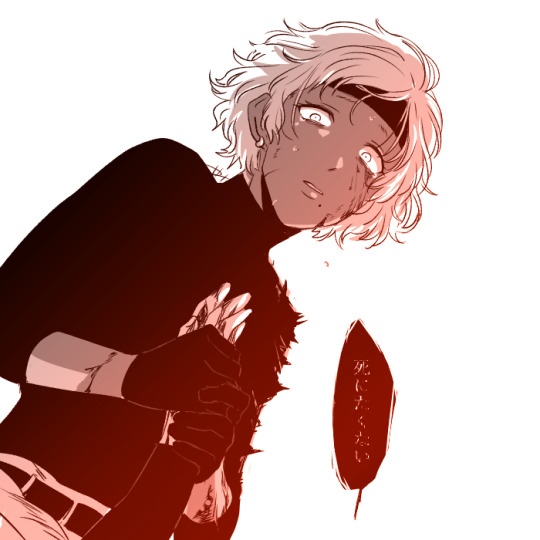
There may be someone who didn’t want to die, and someone else who no longer wants to live...
All illustrations by @55_yamisan
—
Gamma 30, “Thirty” by @meto1030


Just as other Gamma NULLs were violently psychotic or narcissistic, Gamma 30′s disorder was selflessness to a fault, believing any amount of suffering was worthwhile if it made things even a little easier for someone else. As a nurse or aid worker, Thirty could have done so much good, had they not been blessed with extreme reactiveness to Chronos that placed them squarely within a Gamma kill-squad.
Every waking moment was spent in neurosis, desperately thinking of ways they could possibly be of service around base camp, and each rest was filled with nightmares of squadmates buried under rubble or pinned by enemy fire, desperately crying out for help as Thirty fruitlessly crawled to them, trapped in slow motion.
Once the fighting had ended and a ceasefire declared, the only way Thirty could imagine to be of use was becoming a test subject in the government labs, a position typically reserved for NULL candidates too weak to warrant a number and rank. There, at least, they are shielded from the predatory instincts of other NULL who would not hesitate to exploit Thirty’s altruism.
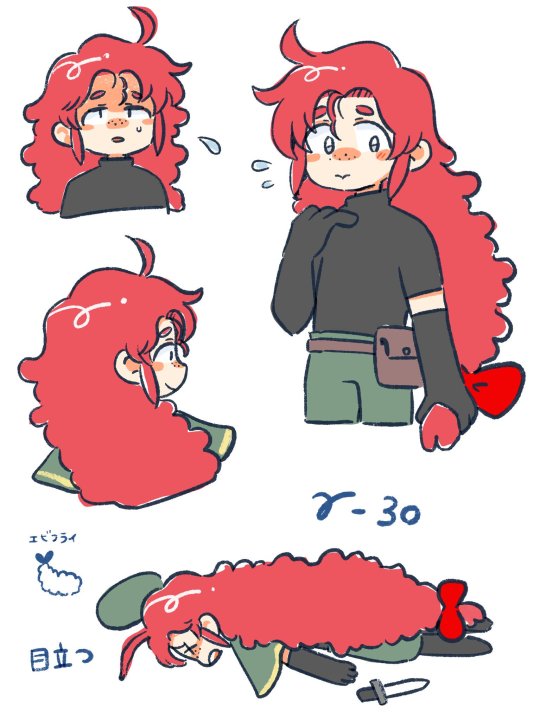
By @meto1030
—
Gamma 61, “Geist” by @dawnygoi
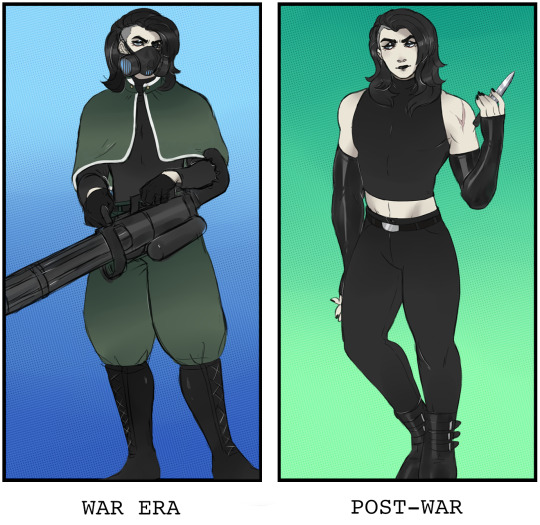
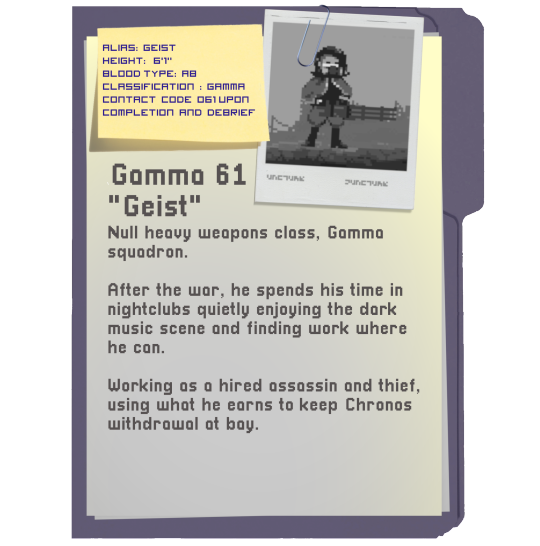
Just because you’re living hand-to-mouth doesn’t mean you can’t pursue your passion. Due to their various psychoses, Gamma troopers developed more eccentricities than their predecessors—the most common being increased sensitivity to music. Their preferred genres varied, but a Gamma NULL could be found humming or nodding their head some invisible beat before or after a battle.
For Gamma 61, his favorite beat was the deafening, breakneck rhythm of his trusty man-portable minigun, and he often burned through hundreds of rounds just to hear its song, filled with the sharpest crescendos and deepest bass. Sadly, it’s a luxury he can no longer afford, and he suffers the indignity of killing his targets with simple knives and other concealable weapons in order to afford his ‘medicine’.
—
Gamma 33, “Weasel” by @zebdraws

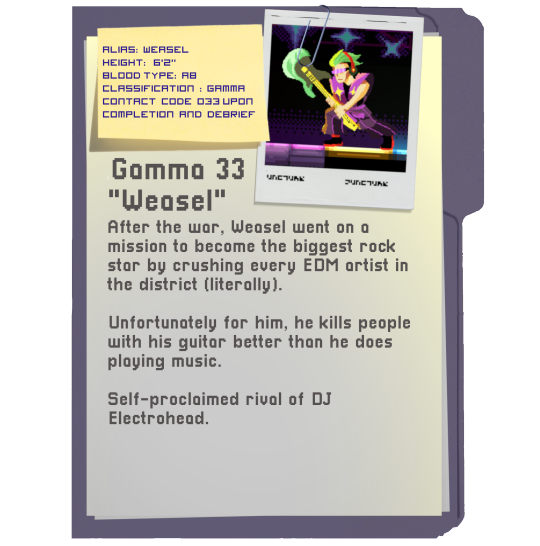
As a legendary rock star once said, “ You see, you don't have to live like a refugee.”
When government spooks are after your head, you have two choices: spend what’s left of your life on the run, or become the biggest musical sensation New Mecca has ever known.
As a soldier, Weasel was fiercely competitive, treating every ally as a potential rival and going to extreme lengths to win any wager, even if it meant resorting to violence. That never changed after he discovered his love of music, even though his musical talents are utterly dreadful, like most NULL.
His “invasion” of several high-profile concerts prompted many venues in the city to begin employing armed security to patrol their dance floors, most notably Club Neon. However, the untimely death of DJ Electrohead has skyrocketed Weasel to stardom as Second District clubs scramble to book a replacement act.
—
Gamma 511 by @Am3002814
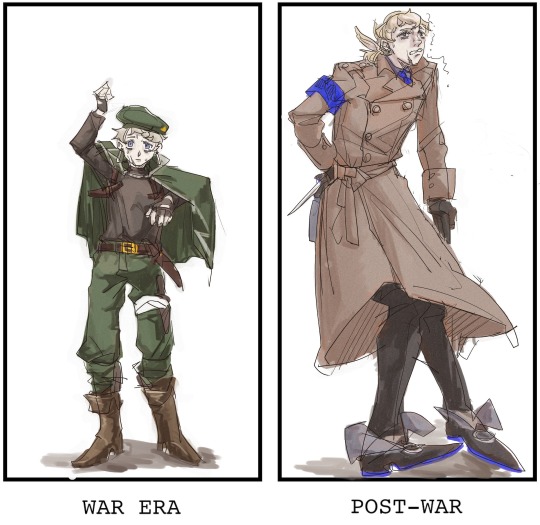
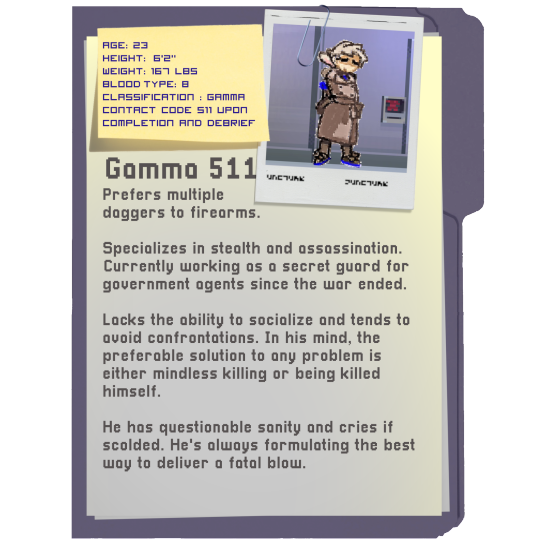
On an employment survey for government security, Gamma 511 would fail by every metric: he’s paranoid, meek, and highly conspicuous thanks to his numerous nervous tics that emerge at even the slightest hint of confrontation. Even when mixed in a crowd, he seems to have an uncanny presence that unnerves those around him. Yet his security record is spotless, and none of his charges have ever come to harm.
So what exactly about 511 sets so many ill at ease? Could it be his shifty gaze, restlessly darting about at strangers’ throats, stomachs, and nether regions? Maybe his constant and profuse sweating, staining his ill-fitting trench coat even on a cold winter morning? Or perhaps it’s the faint “ ゴゴ ゴゴ ゴゴ ゴゴ “ that permeates the air as he walks by with his awkward, loping gait...?
Truly, it’s the quiet ones you have to watch out for.
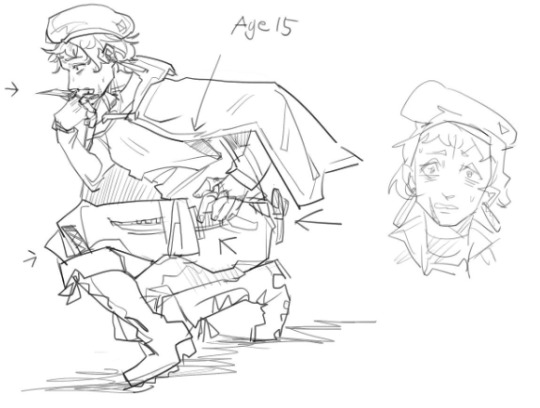
By @Am3002814
—
Beta 39, by @lyexueyee


Stealth and infiltration is an art, not a science. Beta 39′s brand of assassination involves hiding in plain sight—in a crowd wearing her perpetually tired and glum expression, or standing outside a store with hands on her hips, as if impatiently waiting for someone. She deflects attention so well, no one notices the bent and bloodied length of pipe sticking out of her faux-high school bag.
“Hey, those are some cute hairpins!” A student on the train remarks. “Nnh,” 39 murmurs.
“Oh, you must be part of the kendo club!” An old woman exclaims, and is met with a half-lidded stare and a deep, echoing silence.
Hours later, a beat cop finds a local mobster dead in an alley behind his favorite bar, bearing signs of blunt trauma and several stab wounds from a low angle. His gun lies nearby, not a single shot fired. No suspects are ever found.
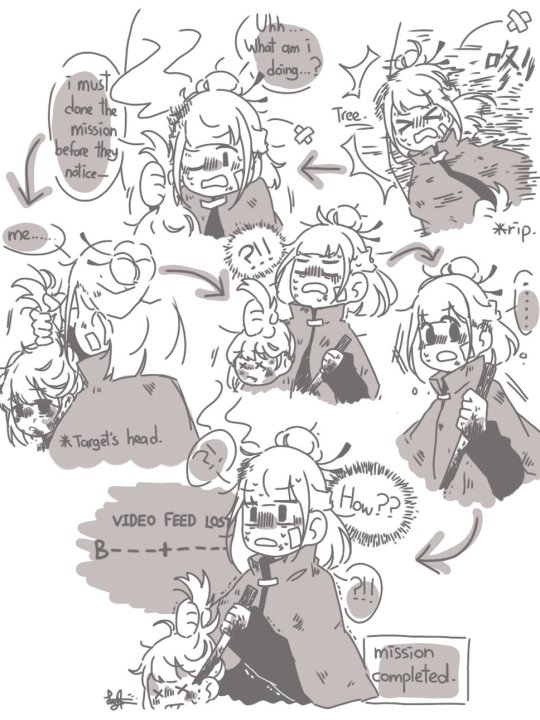
By @lyexueyee
—
Beta 34, “Ephemera” by @BMb_kngw
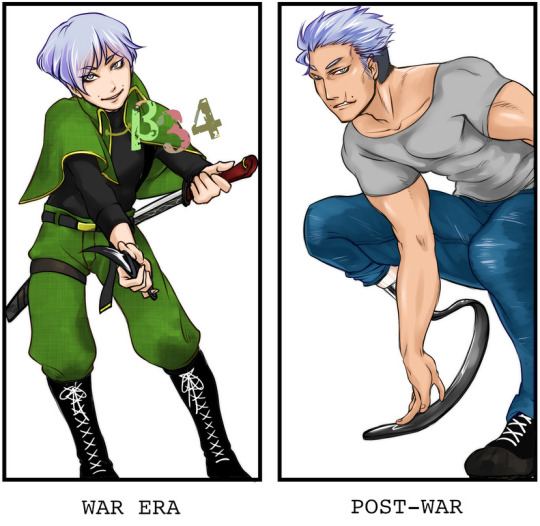
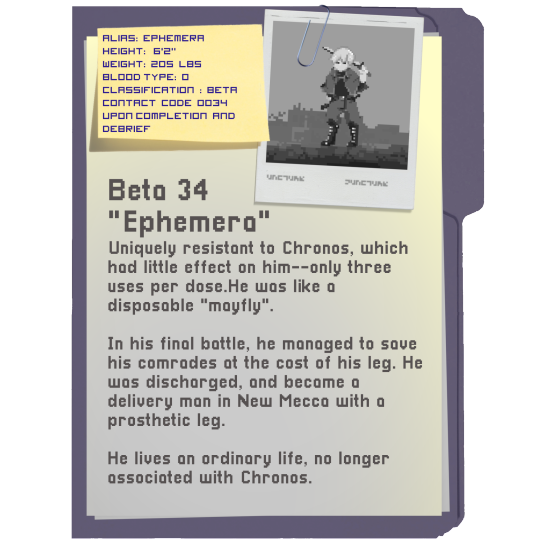
“What use is a tape that can only be rewound three times?”
That was what Ephemera overheard following his fitness trials and physical examination. The researchers had never encountered his like before: a genetic trait that resisted the effects of Chronos, such that a full dose would only allow him a few minutes of precognition and a negligible boost in reflexes—not even on par with Alpha-class NULL. His training results and leadership scores had topped the charts, but by a twist of fate, he barely escaped being sent to the labs.
Even after being assigned to a frontline squad, Ephemera faced continued stigma. Some refused to acknowledge him as “one of them” at all, and rumors spread that his ‘condition’ was contagious, and merely being around him could sap others of their Chronos abilities.
The day he was rushed to the infirmary, his leg a bloodied stump, some jeered that any other NULL could have “reset” to undo such an injury. But oh, how the tables have turned. As it turned out, his ‘condition’ also shielded him from any symptoms of withdrawal. He lives now as a free man, one of the few NULL able to truly leave the war behind.
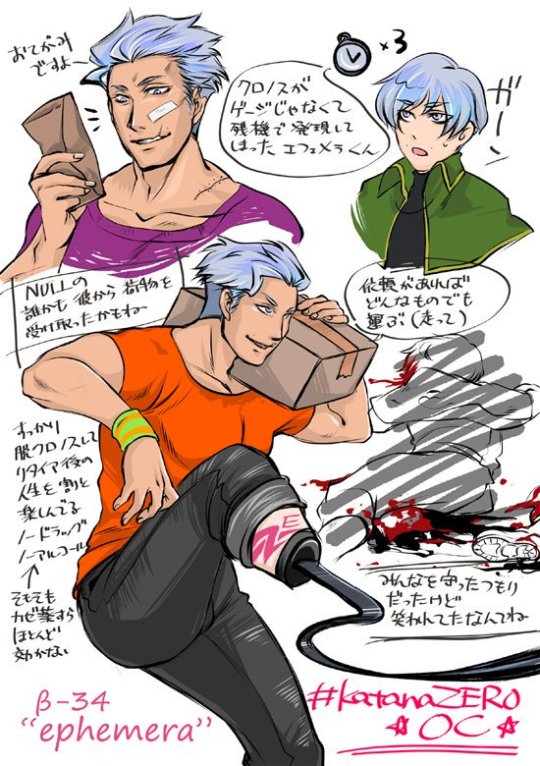
By @BMb_kngw
—
Beta 18, “Gav” by @smugeroni
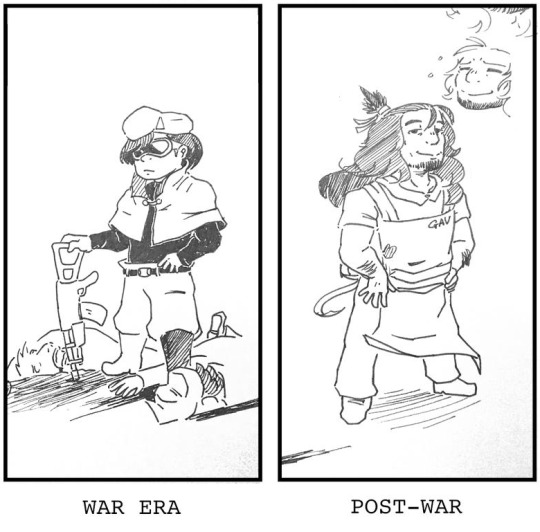
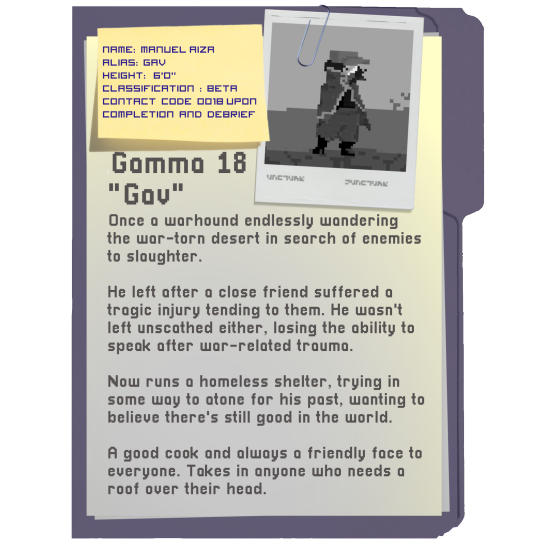
Actions speak louder than words. Anyone who’s pried into the past of a Cromag War vet knows how bitter and cagey they get, but Gav’s wartime injury lets him dodge questions about his service days and move onto the crucial next step of healing and atonement. Homeless veterans who would otherwise despise those “test tube freaks” are thankful for his constant charity and unreasonably tasty meals.
There are still traces of a fighter behind his gentle smile: his bullet-riddled motorbike lies rusting in storage downtown, and he keeps a gun stowed behind the counter for the occasional mob racketeer. No one knows who steered Gav away from his life as a road warrior—who they were to him, or whether they’re dead or alive—but they take comfort in knowing a man can change, and not always for the worse.
—
Beta 49, “D.D.” by @sapheiri
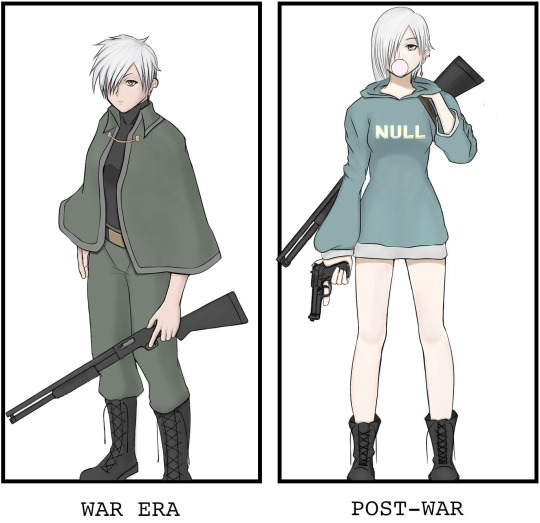
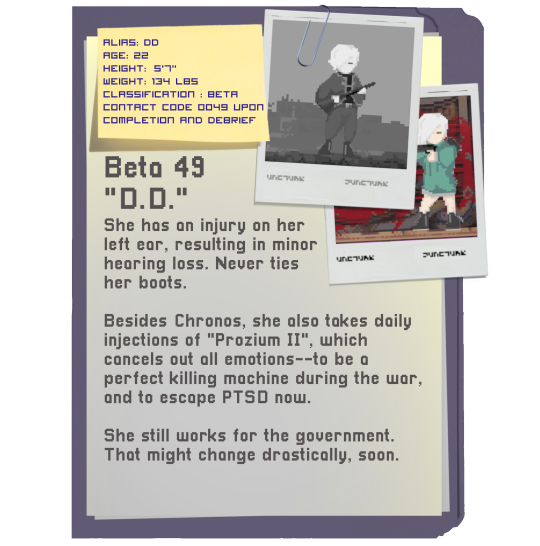
On her first sortie as a rookie NULL, D.D. envisioned a battle worthy of pre-war action movies: fiery explosions at her back, bullets whizzing past her ears, and jets flying overhead as she charged the enemy lines, firing a gun in each hand.
Instead, she found a nightmare. The enemy had set traps and laid ambushes everywhere; the laboratory eggheads had assured her that Chronos had made her immortal, but in that desolate jungle her faith shattered. She was found quivering in a muddy ditch, half-deafened by a close-range blast and wearing socks after forgetting to lace up her combat boots.
Instead of being discharged for proper therapy and recovery, D.D. became a test case for second-generation Prozium, designed to deaden emotions and instill obedience. She returned calm and combat-ready days later, and the researchers commended themselves for their success. They would later come to fear D.D. after seeing her in action.
Today, she can truly realize her former action-heroine fantasies, blasting her way past dozens of gunmen with guns akimbo and walking away unscathed. But she can feel no pleasure from it, nor reflect on the horror at the killing machine she’s become. Some say she still wears her boots unlaced to recapture the rush of danger and fear of death from that first mission, something she has now lost forever.

By @sapheiri
—
Gamma 22 by @dodokubobo

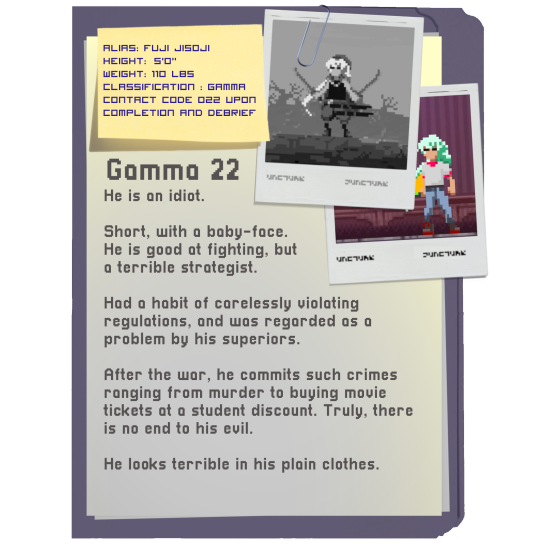
An ideal army is a combination of tactical genius and strict discipline. Gamma 22 had neither, leaning entirely on his remarkable aptitude for Chronos and prowess with his twin katanas to propel him through disciplinary headaches that would have earned any other soldier weeks in the brig. Evidently, it worked; drill instructors ignored his constant absence from combat drills and loud snoring during briefings. As long as he got things done, who cared?
This “golden child” mentality has only swelled his ego since the NULL diaspora, taking what he wants and abusing his abilities to do as he pleases. This makes him an obvious target, but many a foe have seen their cunning ambushes and clever traps fall apart in the face of 22′s sheer speed and skill. Among the New Meccan underworld, there is one piece of advice passed down to every aspiring hitman and bounty hunter: “Do not pursue Gamma 22.”
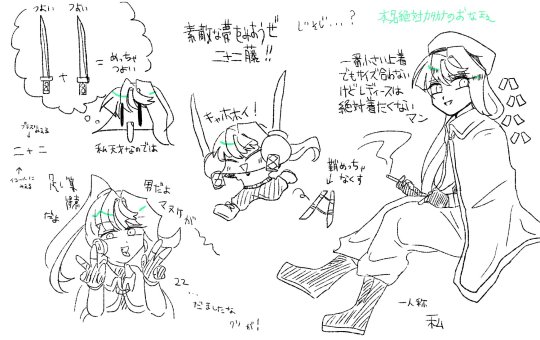
By @dodokubobo
—
Beta 66 by @temeokopn

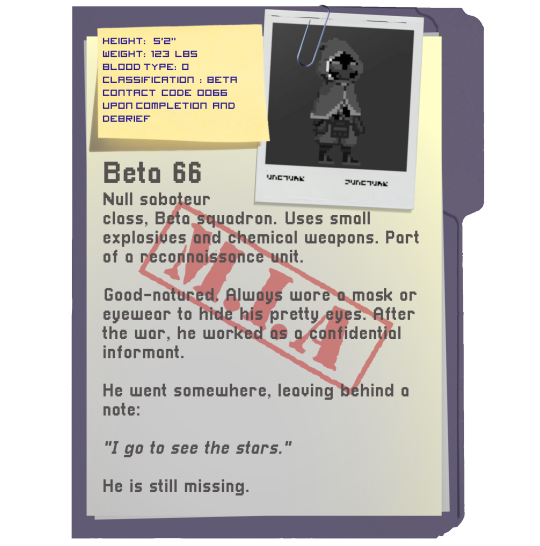
Before the cybernet made information widely accessible to the masses, intel had to be collected the old-fashioned way: through spying, stealth, or skullduggery. This was the perfect calling for Beta 66, who excelled at staying out of sight.
On certain scouting missions, he would wait hours, even days, for the enemy to trip a land mine or succumb to slow-acting poison. And as he waited, he would listen to the sounds of wilderness and scan the night sky through his mask, counting the stars.
In a post-war New Mecca hostile to veterans, 66′s life became a more cloistered affair, surviving as an information broker instead of risking his life behind enemy lines It was only days after his data stream sputtered out that anyone discovered his absence.
One can only hope 66 found the stars he so loved.
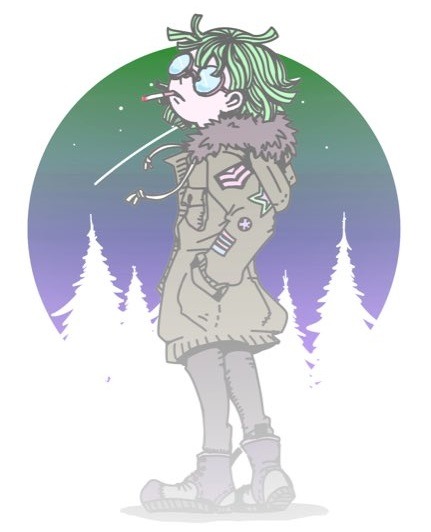
“I go to the stars.” By @temeokopn
—
Beta 9 “Heads” & Beta 10, “Tails” by Jicker



Dynamic duos are nothing new to the New Meccan lowlife, but Heads & Tails are trailblazers in terms of brother-and-sister team-ups. In between sibling quarrels over the superiority of shuriken or grenades, these two clean up mafia hideouts over twice as fast as a single NULL, wordlessly executing well-worn strategies they developed on the battlefield during their first missions against the Cromags; Heads cuts down obstacles to widen her brother’s line of sight or deflects bullets as he reloads, while Tails pins the enemy with suppressing fire as his sister closes the distance with her blade.
Truth be told, their combined efforts often barely compare to some of the carnage a Gamma NULL could unleash. The difference is that, unlike a Gamma, Heads & Tails can’t be bought, nor bargained with. They can’t be bribed with Chronos or crippled by withdrawal. Whatever their reason for isolating themselves from other NULL, it’s clear that the only allies they need are each other.
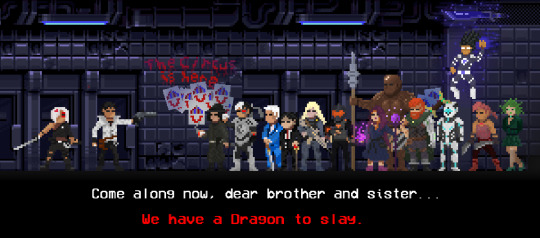
“We have a Dragon to slay.” By Jicker
—
Alpha 66 by @ren_hyuga
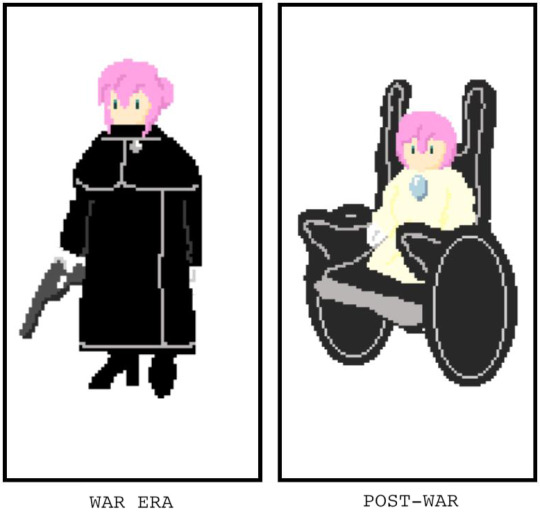
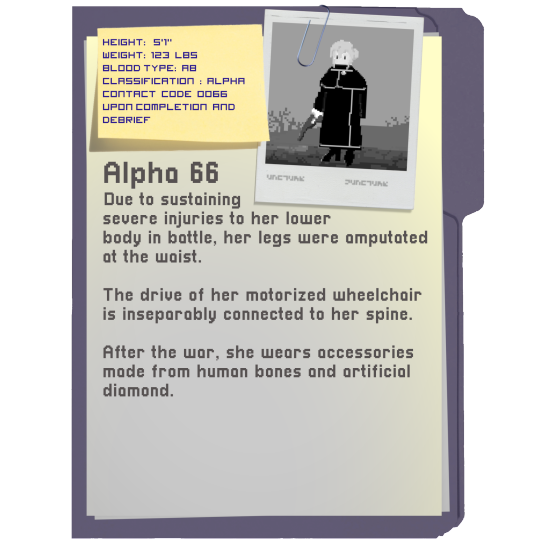
Stella von Ruthuberia’s regal name suggests a relation to one of the prestigious Old Families, though pre-war records make no mention of her in any aristocratic lineage. How someone of her social status was inducted into the NULL corps remains an even deeper mystery. Some claim her to be an illegitimate heir cast out by her family to die inconspicuously, while a few believe she sought the immortalizing power of Chronos, something beyond what mere wealth could provide.
Since her near-fatal injury and the convoluted grafting procedure that surpassed all previous prostheses, the illusive von Ruthuberia has retreated from the public eye, her estate guarded by patrols day and night.
However, some say her hermetic existence is merely an act, and amid a vast stockpile of ill-gotten Chronos, she is every bit as deadly as when she first donned her jet-black robes...
—
Gamma 72, “Nightingale” by @throjnx

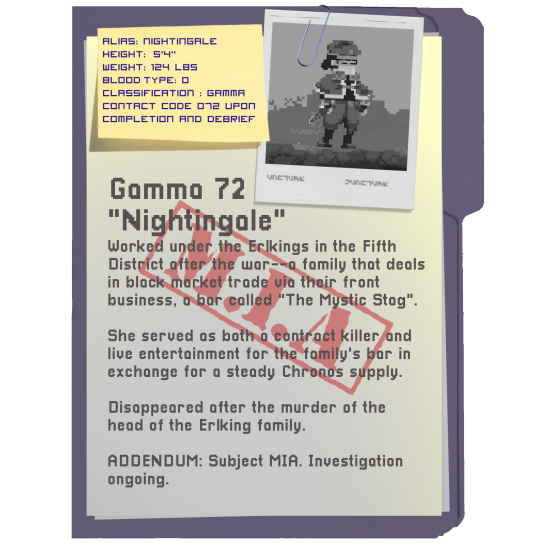
Any crime boss worth their salt knew the prospect of having an immortal assassin at your beck and call was too good to be true. It was. The Erlkings, on the other hand, were a two-bit smuggling racket that saw Nightingale as their ticket out of the Fifth District, whose residents could scarcely afford their services or protection fees.
It worked, for a time. None of the other gangs in their district had managed to snag a Gamma NULL, and they quickly packed up and left once dozens of their number went missing, and police seldom bothered to venture that far out. But the Erlkings hadn’t anticipated how much Chronos Nightingale required nor how pure it had to be, neither of which their supplier could provide.
When they tried making up the difference using threats and blackmail, there was only one way things could end.
—
Alpha 27, “Nina” by @HihumiHii
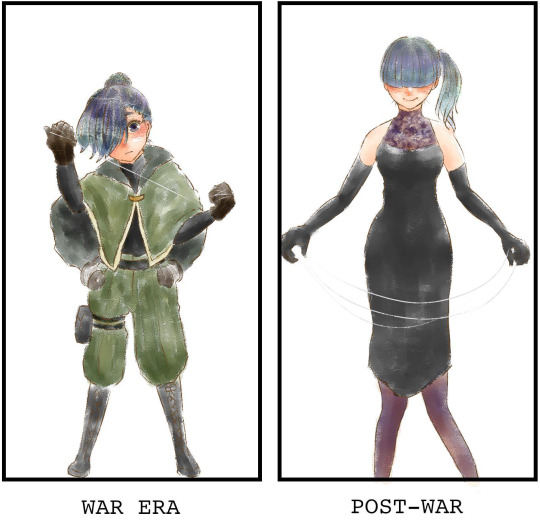

Like a spider spinning its web, the labyrinthine catwalks and cramped alleys of New Mecca are the perfect hunting ground for a femme fatale like Alpha 27. Her clientele are exclusive and her fees exorbitant, but her unique skillset is enough to outwit any bounty hunter and even the occasional Gamma NULL.
Using a vast network of tripwires and strings that crisscross her territory, she can detect activity through the slightest vibrations, from the pounding of raindrops to the footsteps of a potential victim. Most never glimpse their killer, strangled or sliced to bits in her near-invisible webs of razor wire. Others hunt her fruitlessly, unaware she has long since fled.
Outside of contract killings, she frequents the most exclusive social circles in New Mecca to flaunt her mysterious wealth, and is one of the few assassins capable of operating in the near-impenetrable First District thanks to her unsuspecting government acquaintances.
—
Gamma 87 by childrenofgungnir
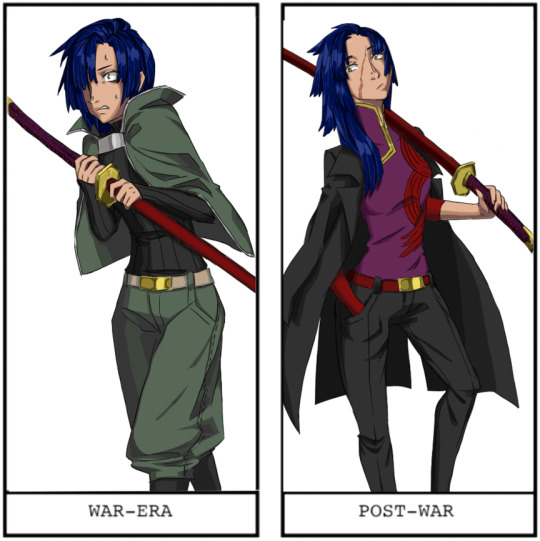
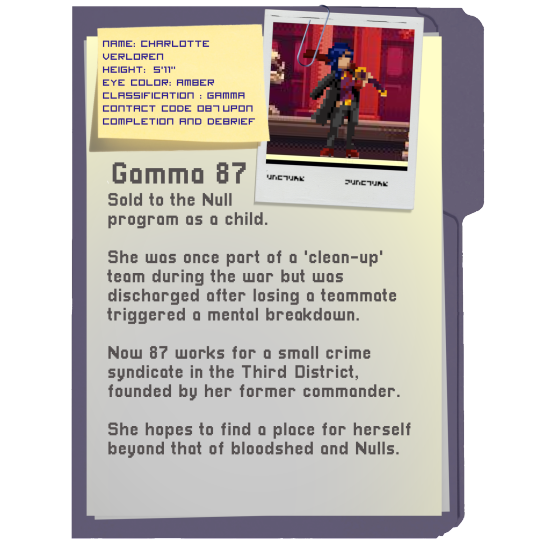
For Gamma 87, each day is a constant battle between “Life’s pretty OK. I got a steady gig and plenty of the blue stuff,” and “What am I still doing here? We lost the war. I keep this up, I’m going to end up dead.”
It’s been over half a decade since Charlotte experienced a panic attack or felt stress at the thought of taking a human life, back when she could still count her kills on two hands. These days, it seems to come easier.
Whenever she sees a penniless Alpha sulking at the bar in withdrawal, she counts her blessings under her breath. But Charlotte can’t help but feel that she’s lost a part of herself in those intervening years—the heartbroken daughter who would have tearfully begged her parents why they let the men in suits take her, instead of the swordswoman who casually sliced them to pieces and emptied their pockets.
Every time, she stops the train of thought right there. Maybe it’s better this way.

By childrenofgungnir
—
Gamma 21, “Lil’ Tomato” by @531012733Kyling
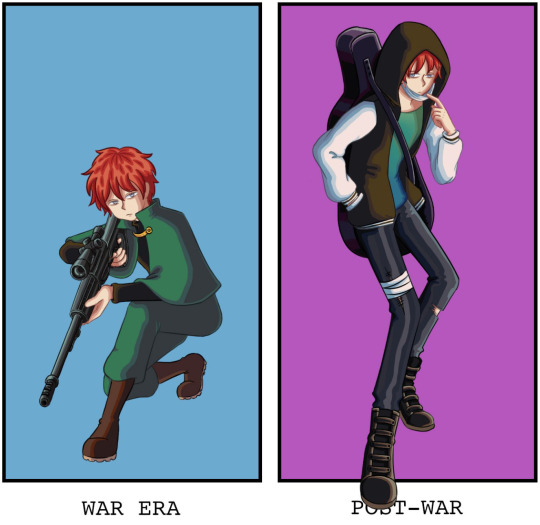

There are few things that can surpass the power of effective teamwork, something Gamma 21 and his partner-in-crime Gamma 37 exemplify. Brains and brawn. Long-distance sniping and up-close fisticuffs. Terrible guitar-playing and midnight drag races.
21 is another in a long line of NULL with an affinity for music but almost no talent for it. Zero’s noisy neighbors can’t compare to the tedium of hearing 21 croon and pluck at the same few sour chords for hours, and his housemate 37 certainly doesn’t seem like someone who would put up with it for long.
For some reason, passerby don’t leave him as much money when 37 is hanging around...
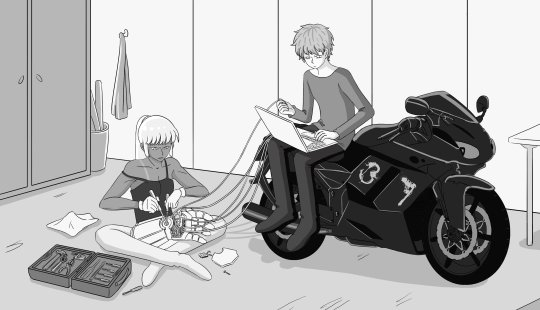
By @531012733Kyling
—
Gamma 37 by @531012733Kyling


While other Gamma troopers favored blades and bullets, Gamma 37 preferred to pummel her enemies with both fists, aided by a pair of high-powered “boxing gloves” that amplified every blow. She scoffed at rookie NULL trying to deflect bullets with their puny blades as her gauntlets easily shielded her from volleys of machine gun fire—that is, until an errant anti-materiel round shattered her glove and nearly took her hand with it.
In the the intervening years, 37 has developed a custom fighting style based around her remaining gauntlet, learning to instead shift her weight and weave between enemy blows to deliver a bone-shattering right hook. She’s even able to use it while riding her motorbike, which has proved invaluable in chasing down targets.
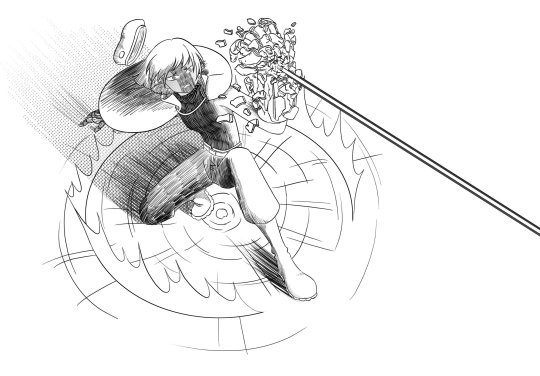
By @531012733Kyling
—
Alpha 12, “Green Demon” by @IDUnknownForte

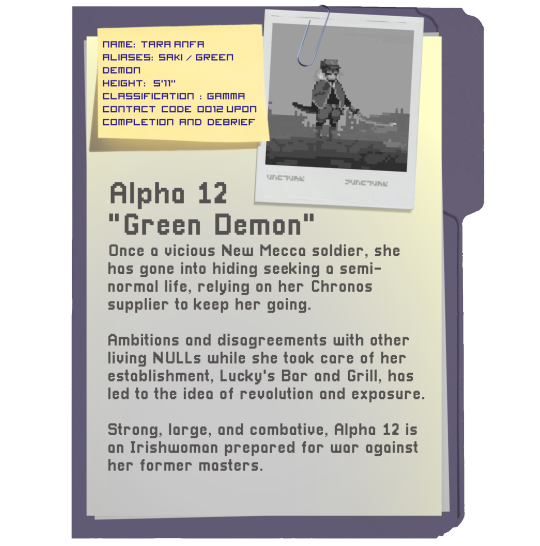
Whoo, I’ll have to tread carefully on this one. Alpha 12 is apparently a transplant from a Katana ZERO roleplay server, so she likely has lots of existing history that I don’t want to tread on.
What I will say is that I love the idea of a NULL dive bar like Lucky’s Bar and Grill. On Friday night, all the down-and-out assassins trudge in to their usual seats, get extremely drunk, and yell about how they’d better start getting some respect because they “could level *hic* this whole f*cking city if [they] wanted to”, all while Alpha 12 slowly nods her head from behind the counter and pours out another round. Long live the revolution.
—
Beta 13, “Kata” by @couriervictor
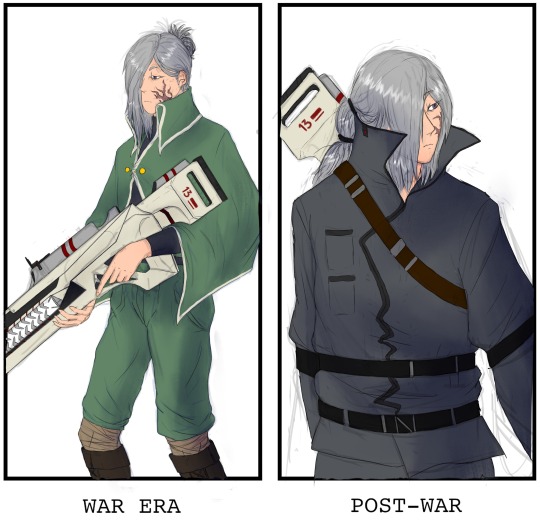

Survival in the Third District is a daily struggle. But for every soldier, there comes a point where survival is no longer enough.
Working for Dr. Alvensleben brought Kata to this point quickly—watching the doctor run hapless trespassers through impossible deathtraps day after day, hunting down targets for an employer he’d never met in person, and receiving his Chronos syringes via a *clink* in the pneumatic tube and a stilted pre-recorded message.
With hope of Gamma 9 stumbling into the Slaughterhouse fading bit by bit, Kata considers the consequences of crossing the only man with the knowledge and resources to manufacture Chronos, and whether he would survive...
—
Alpha 19, “Tameiki” by @matowaar


There are few NULL who could claim to know Tameiki to any degree; to most, she was a terrifying, twitchy blur of facial features, zipping from room to room and victim to victim with inhuman speed. Only her closest squadmates, in moments of intense time dilation, could catch a glimpse of her true face, and even then only an expressionless mask resigned to marching alone amidst an army.
Though still communicating chiefly through writing, she has attempted to overcome her unique circumstances through focused training, such as remaining motionless for extended periods or slowing her speech enough to be audible to average human perception. She has even experimented with Chronos withdrawal, testing if the gradual ebbing of time can let her experience life at the same speed as those around her.
If the ultimate fate of any NULL is to become frozen forever in time, how much longer would that eternity feel to Tameiki...?
—
Beta 12, “Twelve” by @fresh_fren
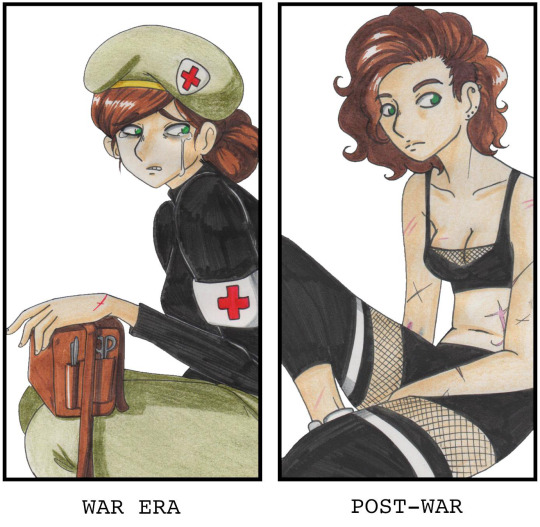

What’s easily broken is not so easily put back together.
Since the Cromags didn’t fully grasp the concept of a ‘non-combatant’, Beta 12′s pacifism in the field earned her ridicule from both her comrades and the enemy. While other NULL treated battles as competitive killing sprees, for Twelve each encounter was like an escort mission—an unending effort to protect squadmates who loved nothing more than charging at machine gun nests with a knife. Can you imagine how frustrating that was?
Despite braving death to retrieve her teammates countless times, she was seldom recognized for her courage, and it became disheartening to incapacitate enemies non-lethally only to watch another NULL shoot them in the head moments later.
Understandably, she hasn’t bothered keeping in touch with her former comrades, and few would believe a kind-hearted pacifist like her was once a veteran, anyway...
—
Gamma 75, “Elvis” by A Dishrag


"Hitting the broad side of a Cromag hut” was a corny insult that floated around New Mecca during the war, but for Elvis it was a job description, one that he was embarrassed to mention during the morning briefings or off-duty get-togethers at the local bar. ‘Tactical demolition’, he called it, but he knew it was an excuse; most of the sheet-metal huts he destroyed could’ve been knocked over by stiff breeze, not a state-of-the-art EMF railgun firing slugs at 4,000 meters a second.
At least they let him keep the uniform and gun when he left the corps, though “let” would be a strong word for it. He simply stuffed the gear into a Sakura Redux X Gaiden shoulder bag and walked out of the barracks, never to return. So far no one’s called him about it, so he figures it’s safe enough to incorporate into his cosplay outfit as long as he keeps the safety on. Right?
—
Gamma 13, “Reaper” & Gamma 14, “Mr. Bomber Glove” by @LoverHigh24
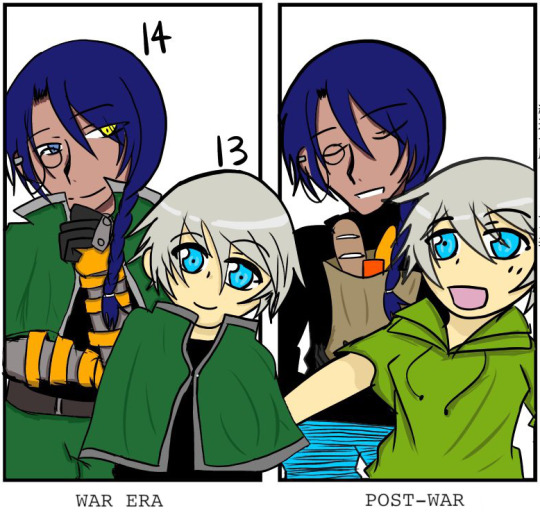
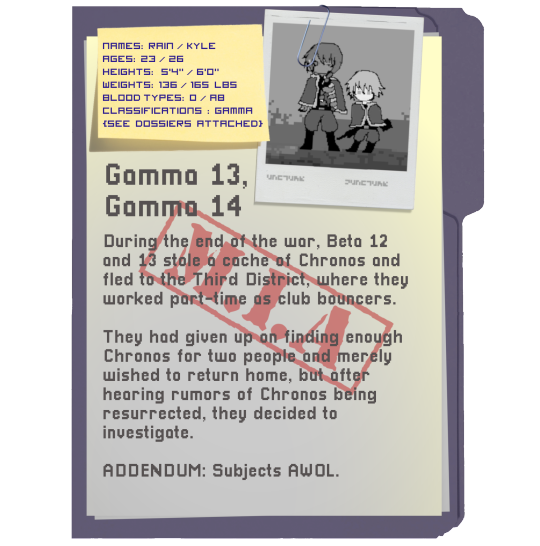
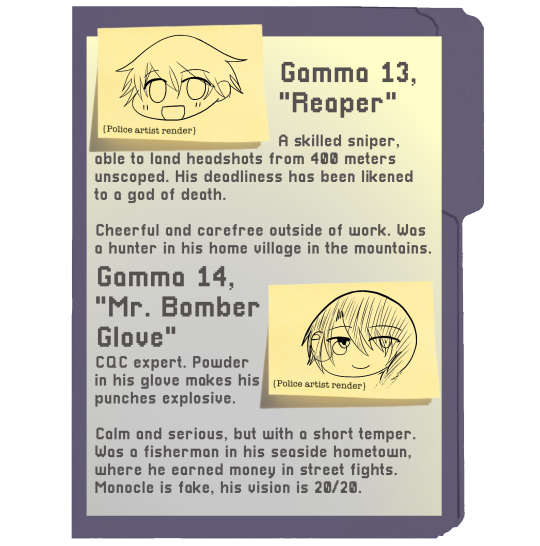
Twice the NULL, twice the withdrawal. It seems some Gamma NULLs, particularly those with complementary skillsets, stuck together in the aftermath of the war instead of turning on each other in their addiction. Rain and Kyle found common ground in their countryside roots, having worked as a team in the final days of the conflict and both sensing the war effort going south.
They’d bid farewell to their neighbors years ago, ready to die as they marched off to war. They agreed they’d be happy enough to see home one last time and spend the eternity lying in their childhood beds, instead of some seedy Third District bar. Yet, as mysterious new shipments of ‘dirty’ Chronos began flooding the market, they find themselves fighting against their former comrades to uncover the source...
—
??? by @Mr_BowerBird
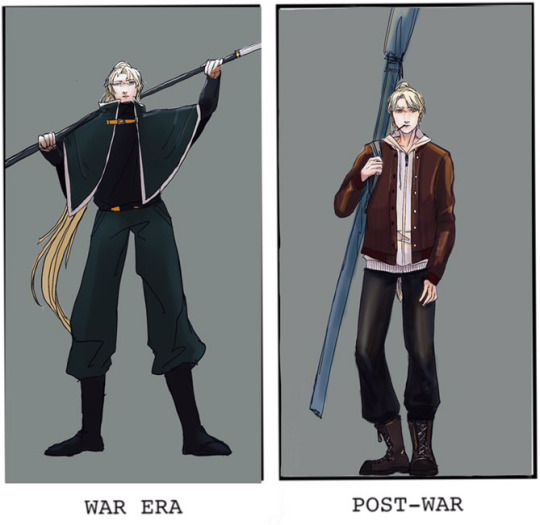
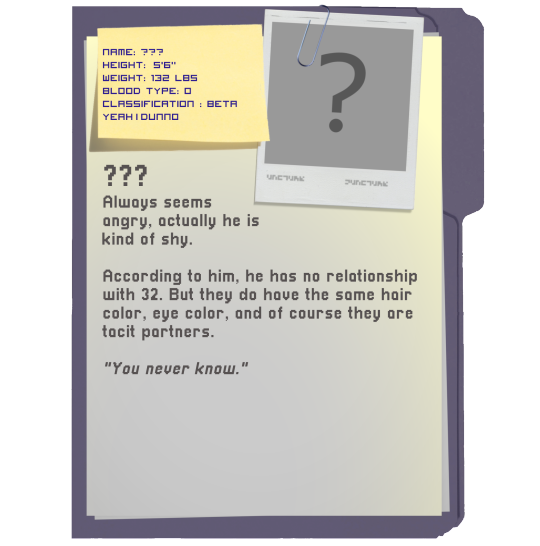
You’re right, spear guy. I don’t know.
I don’t know quite what to make of this guy. His weapon, a Japanese naginata, is quite cool, but last I checked the Cromags didn’t really fight on horseback. His dossier had no name, NULL class, or number. There are no Gamma, Beta, or Alpha NULL OCs I’ve received with the number ‘32′ that was mentioned in his bio. Wish I had more to say, but it feels like I fell asleep in history class and only caught the last three minutes of an hour-long lecture.
—
Alpha 22 by @nbsmgnm

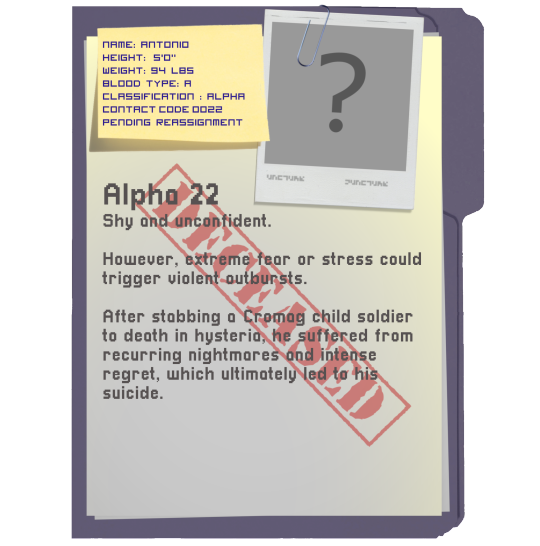
As an Alpha-series cadet, poor Antonio saw action in the opening weeks of the Cromag conflict—before the NULL program became semi-public knowledge, before the “child killings” were in the Second District papers and protest signs, and long before the introduction of Gamma NULL, who didn’t much care who they killed.
When an enemy sniper had his squad pinned down from a high forest ridge, Antonio was ordered to flank them while the others drew their fire. Tactically, it was sound: he was the smallest and thus stealthiest member of the team. But what he found was a Cromag child prone in the grass, barefoot and scanning the jungle treeline with a rifle far twice his size. A boy or girl, he couldn’t tell nor recall afterwards, for the next thing he remembered was being pulled off their mutilated corpse, his fingers around a bloodied combat knife and voice hoarse from screaming.
His commander patted him on the back and congratulated for a job well done, ignoring the bloodshot terror in his eyes. For weeks after he was plagued by nightmares, his hands awash in red and multicolored eyes, so many eyes, staring from the jungle in all directions.
His death would later be ruled as a suicide. He would not be the last.
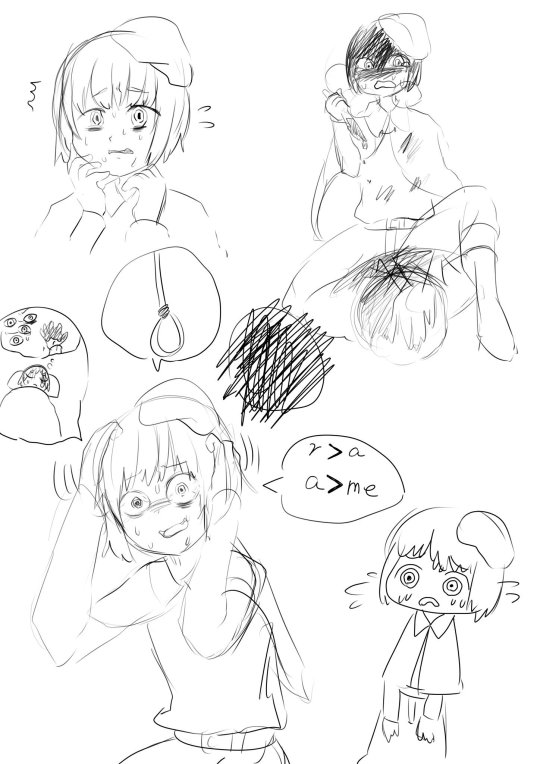
—
Gamma 44, “Luminous” by @hieroparsley
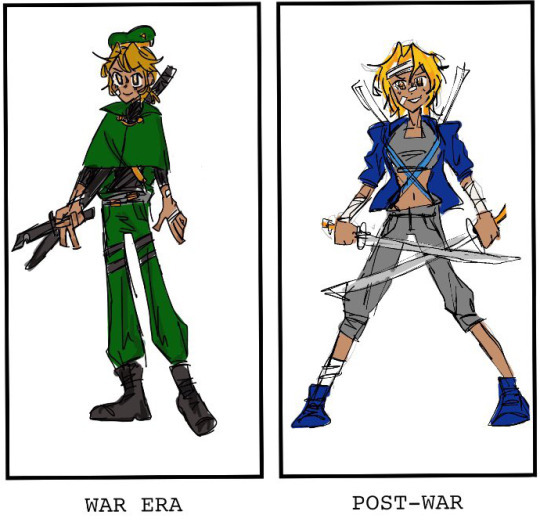

Sometimes, one of the best reasons to keep fighting is for another person—not a partner in crime, but someone to protect. At some point, Luminous was as her ward Anomaly is now: aimless and regretful, fearing for their life but lacking any reason to keep living. Since Luminous took care of the government agents who had tracked Anomaly from her Third District apartment and hacker lair, the two have been evading their watchful eye ever since.
Sometimes their friendship is marred by arguments over what to do with Anomaly’s data on the NULL project: Luminous seeks to disseminate it to the public, either via the cybernet or print, while Anomaly argues for simply destroying the data, in the meager hopes it will save them from the government crosshairs. But Luminous has seen what they’re capable of; she remembers torching the homes of Cromag ‘collaborators’ even after they housed and sheltered New Meccan troops. Forgiveness is not in their vocabulary.
—
Anomaly by @hieroparsley
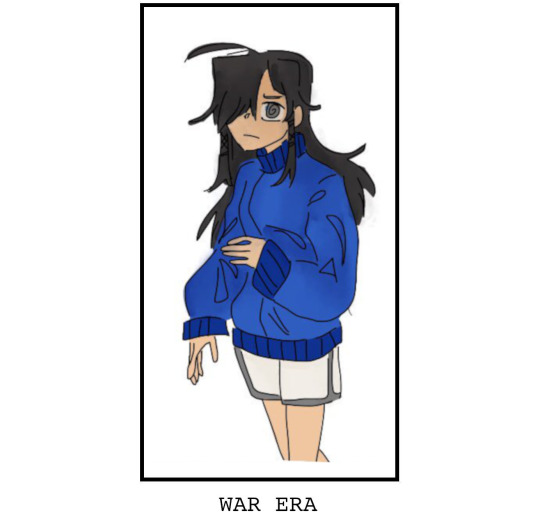
—
And, at last, we’re done.
Over the past month, it’s been great seeing not only the diverse and interesting backstories various artists derived from the scant details of Katana ZERO’s world, but also the friendships that sprang up between fan artists, drawing tributes of each other’s OCs befriending/antagonizing one another and creating an immersive world of NULL just under New Mecca’s surface. It’s been a magical thing to witness, and I hope it continues
A deep thank-you to everyone who submitted their OC to this multi-series showcase, and I’m sorry if it took until now to see your character featured. I needed to save some of the best for last!
I originally planned this event as a finale for the Katana ZERO Fan Art Fridays, but since people seem to be enjoying them, next week I’ll be returning to ‘theme weeks’ for a regular schedule.
Truly, we are...”all the warriors”!

By @wqwrppwu
#katana zero#askiisoft#devolver digital#fan art friday#fan art#original character#do#not#steal#nintendo switch
41 notes
·
View notes
Text
( KIM TAEHYUNG. DEMIBOY. ) Rumor has it that ( SEJIN HAN ) has been spotted skulking around New York City streets recently. ( HE/THEY ) is/are a ( 23 ) year old ( VAMPIRE. ) They have a good reputation for being ( EMPATHETIC & CREATIVE, ) but have also been known to be rather ( ANXIOUS & SELF-DEPRECATING. ) They’re known for being the ( HORROR ENTHUSIAST. )

Childhood/Adolescence
Sejin was born in a small town in California to two people who could not have been less alike. His mother, a stage actress and most definitely the more theatrical of the two, was oft times gone, leaving him to be taken care of by his accountant father and spend the majority of his earlier years with the man.
When Sejin turned five, his mother woke him in the night, the urgency in her expression and her voice alarming him in his half-awake state. He remembers crying as he clung to her, not knowing what was going on, and her hushing him until he quietened down. She carried him through the dark hallways of the only home he had ever down, a little backpack slung over his shoulders, holding some clothes and his favorite plushie. She didn’t explain anything to him then, and as he got older and that whole night became hazier, he only ended up with more questions.
‘Transient’ is the only way to describe the lifestyle they lived from there on out. Every time they would settle down in a town for a month or more, and Sejin would get used to the school, get used to his new friends, they ended up moving again. It wasn’t until his young teens and he started working within the theater communities his mother would integrate herself into that he found out why that was, after witnessing one of her meltdowns when she wasn’t appointed the lead role in their production.
This wasn’t the first time Sejin had begun to realize his mother was a less-than-responsible person, but it was the first time he bore witness to just how far that seemed to go.
As he grew older, he started taking on more and more responsibilities, the jobs that he’d do around the theaters evolving into something a bit more sustainable. His interest in makeup started at a young age and only grew as the years went by, until he was appointed as an assistant to near every makeup artist from every theater he and his mother would drift through. He ended up having an online presence, often uploading YouTube tutorials of the different looks he would do, and from there his skill was only honed, focused.
Horror has always been a sort of escape for him. His macabre fascination with the genre began at the mere age of eight, when he saw his first made-for-TV scary film, and he jumped into it head first from there. It didn’t take very long for him to go from production makeup and ‘looks of the day’ to gruesome, gory monster faces and prosthetic’s. His creativity flourished, and his passion became clear --- if only his mother were stable enough to give him a foothold towards what it was he actually wanted to do.
Fast forward to age eighteen. It’s been years of him looking back on his earliest memories, on the loving warmth of his father and the absence of his mother, and years of him asking her what happened that fateful night when she spirited him away. Years of her avoiding the question, avoiding giving him details, avoiding anything and everything aside from telling him “your father left us.” It never made sense to him how things could go cold so easily, how the man who had always given him so much love, so much affection, suddenly no longer wanted him anymore. Answers are what he needed, what he sought, and once he was old enough, his mother could no longer stop him from seeking them.
Sejin was just past his eighteenth birthday when he finally found a number to call, an address in a different country, and various news clippings and missing person reports that made him feel so numb inside he wasn’t sure if he would ever feel again. As it turned out, it wasn’t only his mother’s aversion towards taking a background role that caused them to move around so much as he was growing up, and after the third or fourth time he saw his own five-year-old face looking back at him from a computer screen in a library he’d never set foot in before, he felt so sick he had to run.
Confrontation had never been his strong suit, and he had the tendency to avoid it like the plague whenever the necessity came up. That day was no different than any other. He drained the money from his bank account, packed up his various makeup supplies, his clothes, and the other few meager belongings he had, and he fled.
It turned out that night was the worst night of his father’s life, and it turned out that it was the worst night of Sejin’s, too. His mother had taken him. Taken him so that in the morning when the light shined in on his bed, and his father came to wake him up for school, there was no trace of ether of them left to be found. To this day he doesn’t know her motivations, the ‘why’ of it all, but nor does he want to know about them either. There’s nothing that she can say to him that will justify what she did to him, not just in kidnapping him, but also in the incredibly damaging way she had raised him.
When he ran from her, he never looked back. Only forward. Only ever forward.
Early Adulthood
Getting in touch with his father was as easy as breathing. The moment he picked up the phone and Sejin heard that familiar voice, his throat closed up and tears flooded his eyes. International charges be damned, they both spent minutes of that call in silence, just crying together when they couldn’t articulate the right words, with his father repeating to him over and over that he never stopped looking for him. Sejin believed him.
A couple days later, and Sejin found himself on a plane to London, where his father had moved to be with his now-wife some years ago. He was welcomed into the family with open arms, finding out all in one day that he had a loving step-mother and two smaller siblings who would look up at him with wide eyes that matched his own more closely than he ever thought possible.
It was in this environment that Sejin finally felt himself begin to grow into who he was supposed to be all along. Being given a healthy and stable place for him to explore who he was happened to be what he needed to discover that person, and everything from questioning his gender identity to his sexuality was accepted wholly and completely by the people who actually loved him.
Of course, even this couldn’t fix everything that had happened to him, and he bore so many barely-healed scars that it took a long time for him to be capable of seeing past them enough to accept the reality of him. It also took outside support, predominantly from one person in particular who turned out to be his soul mate.
Bell was everything that Sejin ever wanted, and everything that he felt he couldn’t have. They were fast friends from the second that they met, and though his crush didn’t take long to develop, it never fully went away either. They became inseparable, supporting each other in every way they knew how, through thick and thin, and Sejin loved, loved him. Loved him a lot. He’d never had a friend like him, and he didn’t think he’d ever find one quite like him again.
With his YouTube channel and Instagram taking off, Sejin finally found himself a stable job doing makeup in a theater nearby his father’s place. It was the first time he’d felt a real sense of community, of acceptance for who he was, and he melted into it like it’s what he needed all along. Happiness didn’t seem so far away during those early weeks, those months, and that went especially so for when he and the lead actor in the play started seeing each other after hours, once everyone else had gone home.
The affair was passionate, romantic, and Sejin’s heart was just naive enough to take it at face value. They couldn’t be open about their love because he (the other person) was closeted, and accepting that wasn’t a hard choice to make. What he didn’t expect nor accept was the one night that they got caught in one of the dressing rooms, his own clothes half-way off and his lips swollen from kisses, by one of his partner’s friends with their phone out and their camera app open.
As it turned out, that particular friend of his had already seen them together once, and in order to preserve the “reputation” of the lead actor, they both had constructed this plan to humiliate and exploit/blackmail Sejin into not spilling the nature of their relationship to anybody else. It felt dirty, made him feel dirty, small, destroyed. They looked at him like he didn’t mean anything, and they spoke to him like he didn’t mean anything, too. While that wasn’t the first time he started to believe that about himself, it did begin to hammer the point home quite thoroughly. Sejin quit and never went back.
From there on, he had a long string of failed relationships, of hook-ups, of men telling him that he was only worth a night in the sheets, and of him believing them. He became closer to Bell, the only person in the world who could possibly understand what he was going through, and he clung to the happiness that he found with his family as being the only thing that he really needed.
Around age twenty-one, his Instagram had taken off enough that when he put his resume out there to various film and television production companies, he actually began to get jobs. He worked mostly as an assistant at first in cheesy B-movie horror films, and sometimes on television series as well. It felt fulfilling, like he was finally on the path to where he wanted to be.
Then Bell disappeared.
It was something that happened all-at-once, so suddenly he was in shock, and every attempt to look for him came up fruitless.
Currently
The last place that Sejin had known Bell to be was New York City, so after some time passed, he packed up his bags and set out to look for him. His efforts seemed to be in vain, however, and even after almost a year of searching, he kept coming up with nothing.
That was around the time that he met Valentine.
There was something acutely alluring about him to Sejin, something that drew him in more than anyone else had in this entire city, and a sort of infatuation began to develop on his end. From the way he dressed to the otherworldly grace with which he carried himself, everything about Valentine made Sejin want to be close to him, to get closer to him. He became sort of attached when, contrary to what he had been led to believe he was good for, Valentine made it quite clear that there was no desire in him to use Sejin for sex. He was just unlike every other man that he’d ever met, and even his speech patterns were enough to make him want to listen to him all day and all night.
It was funny, then, when Sejin found out what he was, and it wasn’t even the least bit surprising for him to fit those pieces into place.
Vampires existing should’ve caught him off-guard, should’ve made him absolutely lose it with the improbability of it all, but instead it just drew him in more. There was no fear in the way that he looked at him, no guarded expression, nothing that would indicate he was in any way hesitant to remain with him, around him.
Asking to be turned wasn’t a difficult decision for him to make, even knowing that he would give up the sun. Even knowing that there might be nothing left for him in the human world after that. It just felt... right. Like the right path for him to take. He was born to be a vampire, as he put it, and as it turned out, Valentine agreed with him.
Quick Facts
Sejin was turned by Valentine around the first of August, 2019.
Forever 23-years-old.
Demiboy (he/they, please).
Gay.
Makeup artist who thrives predominantly on Instagram and YouTube.
Speaks in a very flat voice 9/10 times, far too dramatic, emotionally vulnerable despite how much distance he attempts to keep between him and everyone else.
Pretty much exclusively dresses in black.
Bottom lip piercing and three ear piercings.
Lives in the manor with his sire and all of the other little vampies who drift in and out.
Knows very little to nothing about the war or about lycans in general.
He is babie.
Hmu here or on discord if you wanna plot!
5 notes
·
View notes
Text
BLOGTOBER 10/23 & 10/25/2018: HALLOWEEN (2007) & HALLOWEEN II (2009)
By the time Rob Zombie made the bold move of remaking John Carpenter’s name-making classic HALLOWEEN, the horror rock-star’s directorial career had already proved to be incredibly divisive. His 2003 film debut, HOUSE OF 1,000 CORPSES drew a cult from among diehard fans of his music, but was largely panned by critics who identified it as a ramshackle, self-indulgent disaster. The movie was little more than a Frankensteining-together of Zombie’s favorite things, but he managed to follow it up swiftly with 2005′s semi-sequel, THE DEVIL’S REJECTS. With this project, he appropriated three of the principle characters from his cartoony, ROCKY HORROR PICTURE SHOW-like first feature, and reimagined them as the redneck antiheroes of a story that plays like a cross between THE TEXAS CHAIN SAW MASSACRE and THE WILD BUNCH. While DEVIL’S REJECTS showed major improvements in terms of drive and focus, it still felt unsettled. It is an emotionally confused movie that has trouble deciding whether its tale is more tragic for the innocent victims of its psychopathic protagonists, or more triumphant, for the Rejects’ anti-establishment swagger and charisma. Rob Zombie displays a refined aesthetic sense, and seems sincere in his storytelling, but he didn’t have much time to let these things ferment into a more potent cinematic brew before he stepped up to bat again with his controversial remake of the beloved HALLOWEEN in 2007.
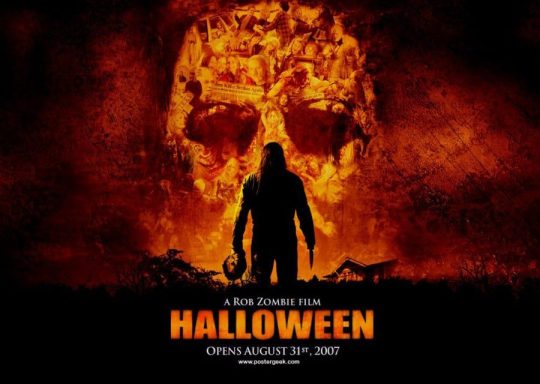
Reviled even by the likes of John Carpenter himself, Zombie’s dour, ponderous retelling of the archetypal slasher story was baffling to critics and genre buffs alike. Loaded up with clunky psychoanalysis that flies in the face of Carpenter’s original intention--Michael Myers is PURE NO-REASON EVIL, FULL STOP--this iteration of HALLOWEEN worked for few people besides Zombie’s hardcore stans. In spite of that very large and general problem, the writer-director was back again in 2009 with a sequel to his own remake. With HALLOWEEN II, he took two major creative risks: Bringing the ubiquitous Sheri Moon Zombie back even though her character died early in the first film, and centering the narrative on Laurie Strode’s psychological recovery, or lack thereof, from her original ordeal. It is easy to see how this setup would draw more complex and ambivalent responses. Mrs. Zombie’s appearance as the ghost of Myers’ mother, whose character is plagued by a lot of Jungian nonsense, was identified fairly as ludicrous by many viewers. On the other hand, Scout Taylor-Compton’s return as Laurie Strode takes a character who was little more than a cardboard cutout in the first film, and turns her into a convincing mass of trauma who undergoes a profound transformation over the course of this sequel. As with THE DEVIL’S REJECTS, HALLOWEEN II suggests that even while Rob Zombie can be an incredibly frustrating filmmaker, he still seems to be on to something. Even in my most stuck-up moments, when his smug use of slow motion and arias of unshocking cuss words make me want to forget everything I just watched, his movies nag at me in a way that I have a hard time describing. I’m just now starting to formulate an understanding of why.
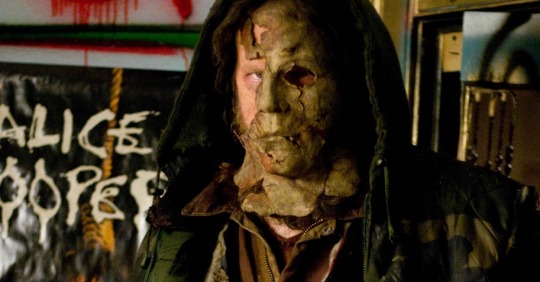
Often, I find myself asking: Who is Rob Zombie? First and foremost, he is a professional nerd. His music, art, videos, and feature films are strung together by his scholarship in all things genre, whether he’s invoking Tobe Hooper’s snuff-like realism, or the innocent sitcom pleasures of the Munsters. Zombie is vastly erudite about horror, and really anything remotely culty. This is actually to the detriment of HOUSE OF 1,000 CORPSES, which is so bloated with pop culture references that it almost chokes out the movie’s dubious originality. But while he has that irritating nerdy compulsion to competitively show off what he knows, he doesn’t seem like the kind of guy who buys and bags comics without even cracking them open. Rob Zombie is clearly, legitimately passionate; it’s heartwarming, and enough to make you want to root for him even when you don’t totally love what he’s doing. His craftsmanship is on point, too, as a multimedia artist whose talent has been abundantly evident since the early band flyer days. It comes as no surprise that he attended Parsons School of Design, and he occasionally shows his hand as an amateur film historian with a love for golden age Hollywood. So, whatever he wants you to think about his hellbilly stage presence, he’s clearly no hick, and no basement-dwelling dweeb either. He’s an educated artist with a background in New York City’s brainy ‘80s noise rock scene. It’s because of this that I find the worshipful attitude his films take toward their sociopathic murderers to be, well...kind of annoying. Why am I supposed to think it’s so cool, as the movies’ punk rock tone suggests, that the Firefly family tortures random bystanders to death for no apparent reason? Why doesn’t Rob Zombie know how tired the whole “scary clown” thing is, and has been for a long time already, even when it’s someone as magical as Sid Haig under the greasepaint? Why do I feel like Zombie’s interest in pimps and ho’s is deeper than just exploitation pastiche, which makes it potentially worse than if it were just a shallow affectation? The thought of this Massachusetts-born college boy fantasizing obsessively about being so crude and violent and salt-of-the-earth is kind of lame. So, instead of just, you know, being a hater as usual, I looked it up--and discovered that Rob Zombie’s roots are actually in the fairway. As Wikipedia aggregates from various interviews:
While raising their sons, Rob's parents worked in a carnival, but they chose to leave after a riot broke out and tents were set on fire. Zombie recalled the experience in an interview, stating, "Everybody's pulling out guns, and you could hear guns going off. I remember this one guy we knew, he was telling us where to go, and some guy just ran up to him and hit him in the face with a hammer – just busted his face wide open. My parents packed up real quick, and we took off."
Suddenly, it all started to make sense. Sure, the costumed popstar isn’t an undead cross between Jerry Lee Lewis and Charles Starkweather in real life, but he isn’t a complete poseur either. It isn’t immediately clear, from underneath his mountain of collectory movie references, that he is, more or less, writing what he knows. He isn’t just emulating his cultural heroes, he’s mythologizing his own childhood.
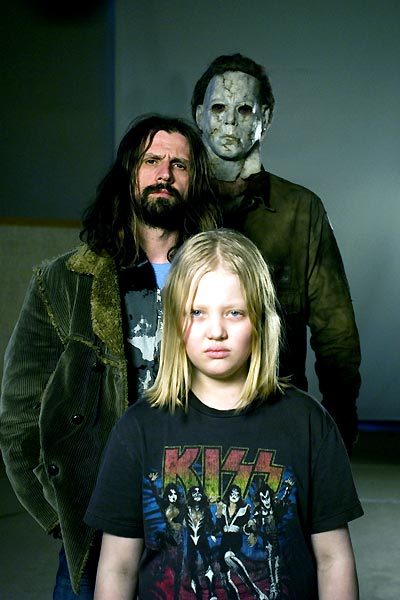
In view of this, the key to Rob Zombie’s movies is not an awareness of horror history and semiology; it’s actually all about outlaw culture. So, back to 2007′s deeply flawed HALLOWEEN. It’s a heavily bro-y movie, in its outsidery way, that breaks up the Dr. Loomis-Michael Myers-Laurie Strode love triangle, and focuses almost entirely on building a Myers biography. The fascinatingly sullen Daeg Neergaard Faerch plays young Michael, a fatherless boy on the verge of snapping from the relentless torment coming at him from all directions: his slutty sister, school bullies who fixate on his stripper mom (Sheri Moon Zombie), and his mother’s latest violent, depraved boyfriend. Michael follows the serial killer script perfectly, graduating rapidly from torturing animals to brutalizing other kids to annihilating his sister, her boyfriend, and his mother’s beau one Halloween night when his sibling chooses sex over taking her little brother trick-or-treating. He soon finds himself installed in a mental institution where he moves on to slaughtering the staff. Dr. Loomis (Malcolm McDowell) spends years evaluating the boy, though he is ultimately stymied by Michael’s profound lack of humanity. As Michael increasingly retreats behind the folksy homemade masks he spends all day crafting, the opportunistic Loomis gives up on him, instead committing his energy to a money-making true crime/pop psychology book about Myers. Flashing forward, we find the hulking adult Michael Myers (played by the 6′8″ wrestler Tyler Mane) getting ready to bust out of the asylum and wage war on his home town of Haddonfield. There we finally meet teen dream Laurie Strode, a spunky babysitter with a gaggle of gal pals who are perfect grist for the slasher mill. In the final leg of the film, Myers carves his way through Laurie’s social circle, in an apparent attempt to reunite with his sister: Laurie herself. Sheriff Brackett (Brad Dourif) reveals that when Michael’s despairing mother committed suicide years ago, he took her infant daughter and had her adopted out anonymously to insulate her from her family’s tragic history. Laurie, for her part, is unaware of anything other than her need to survive, which she only barely accomplishes.
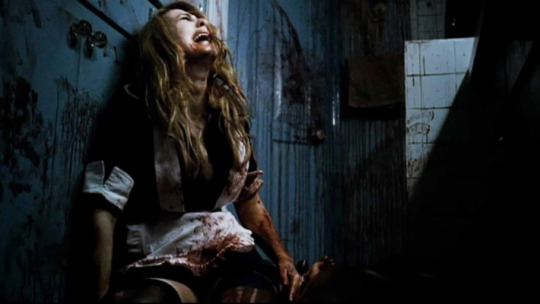
Naturally, Laurie’s story is the weakest part of a movie that is otherwise so focused on male experience. That is, the experience of needing a father, the ambivalent and ambiguous craving for maternal intimacy, the trauma of having your masculinity impugned by your (fag-obsessed) peers, and perhaps even the undermining influence of academia and capitalism on a man’s natural-born strength and worth. When the newly-freed Michael Myers storms through a truck stop to begin his pilgrimage to Haddonfield, and Rob Zombie chooses to accompany this scene with Rush’s regal outlaw anthem “Tom Sawyer”, it tells you everything you need to know about this take on HALLOWEEN. Like the rampaging Firefly family in DEVIL’S REJECTS, Michael is certainly evil, but he also represents something essential about the formation of and reinforcement of one’s individuality in the face of castrating societal norms--something the carnies among whom Rob Zombie grew up would have found very relatable.
It’s worth noting here that, while the sexuality of the women in Michael’s life plays a role in his distorted development, he is not reacting to their sexuality in and of itself. Michael Myers is not driven by the kind of covetousness that we associate with the archetypal slasher, who gives sexually frustrated male viewers a vicarious thrill by punishing sluts and teases. Michael’s problem is that his mother and sister’s sexuality contributes to his isolation. His classmates use his mother’s profession against him, and that profession keeps her from being able to tuck him in at night. Similarly, Michael doesn’t get to enjoy Halloween with his family and the other neighborhood kids, because his sister is too busy getting laid. Michael is abandoned, even while he still has a home to return to, an outsider even in his own house.
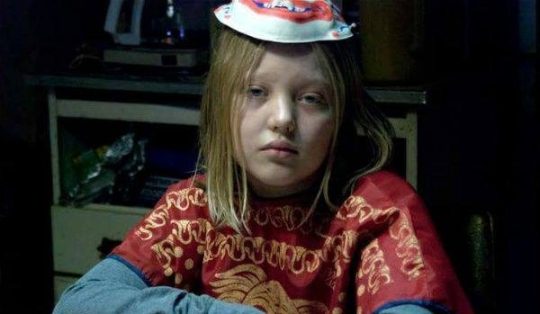
This leads me to an important point about why the portion of the movie that is devoted to Laurie's struggle is so ineffective. It is a flaw in the film, but a virtue of the director: Normal, attractive teenagers are not Rob Zombie’s people. He doesn’t even participate in traditional slasher movie misogyny, he’s so far away from thinking about them. His movies are full of badass women who are fully possessed of their sexuality, and who wield it like a weapon against hypocrites and assholes, and this is always shone in a heroic light. Moreover, he delights in casting women of all shapes and ages, often assigning them immense personal power, as in LORDS OF SALEM, an enormously satisfying movie about society’s original persecuted outcasts: witches. Rob Zombie is deeply committed to outsiders, and his definition of them isn’t limited to banal lawbreaking--he also rejects conventional beauty and our cultural obsession with youth. His films are populated by all manner of human beings, and the farther away they are from looking like model material, the more likely it is that they’re meant to be the heroes. On that note, whatever you think of his movies, you have to acknowledge that they are almost never dehumanizing. Zombie is an accomplished actor’s director who gets a full spectrum of emotion out of his performers, and who excels at creating a feeling of camaraderie within his ensemble casts. It is this surprising sweetness, and compassion even for the victims of the villains he lionizes, that makes HALLOWEEN II so peculiarly effective.
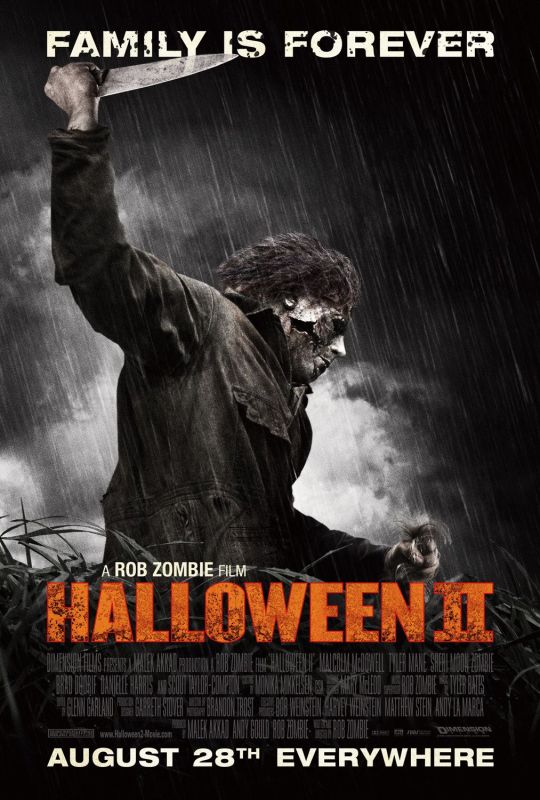
If 2007′s HALLOWEEN was a remake on which Rob Zombie couldn’t resist draping some of his personal hangups, HALLOWEEN II is almost a completely original and separate entity from what one thinks of as the franchise started by John Carpenter. In it, Michael Myers is presumed dead but his body is missing--and indeed, his character is missing for much of the movie. We find a disturbed, scarred-up Laurie Strode living with her surviving friend Annie, and Annie’s father, Sheriff Bracket. Laurie is dealing, poorly, with a heavy dose of PTSD. Along with nightmares and flashbacks, she also has trouble just being nice to people, or accepting affection. Annie and her father’s attempts to be charitable with their adoptive family member are no match for Laurie’s increasing surliness and mistrust of the world. Once a good-natured and optimistic young woman, her appearance becomes vagrant-like (curiously similar to Rob Zombie’s own casual look), her attitude is more and more nihilistic, and she develops a drinking problem. I’ve always wanted to see a movie with a slasher-like narrative foundation, but that focuses on aftermath and recovery, and recent gimmicky efforts like FINAL GIRL and LAST GIRL STANDING did absolutely nothing for me. HALLOWEEN II--at least, the superbly-acted Strode part of it--is the movie I’ve been asking for.
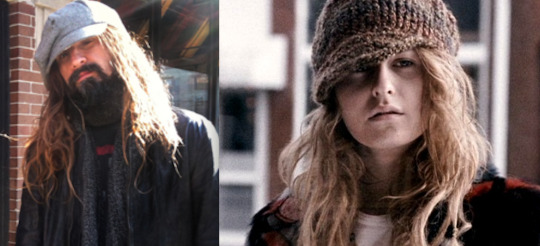
The other part of the movie is also interesting--or more specifically, it’s as ballsy as it is flawed. The movie gets off on kind of a bad foot when a title card quotes an obscure psychology text book called The Subconscious Psychosis of Dreams:
WHITE HORSE - instinct, purity, and the drive of the physical body to release powerful and emotional forces, like rage with ensuing chaos and destruction.
This is the excuse we have for the fact that the ghost of Deborah Myers arrives with a white horse to compel her son to find his sister Laurie Strode, aka Angel Myers, to reunite their family, presumably in the afterlife. Deborah Myers is kind of a spectral cross between Glenda the Good Witch and the Wicked Witch of the West, at once welcoming and sinister, drifting in and out of Michael’s consciousness in the company of a sort of ghost of his childhood (Chase White Vaneck, who is no Daeg Faerch honestly). It might be easy to dismiss this anomaly as an expression of Michael’s mental illness, and his desire to experience an idealized version of his youth in which his mother still looks after him--except that later in the movie, during the final standoff, Laurie is shown to be physically affected by these spirits. Maybe the implication is that she and Michael suffer the same psychological ailments, but for them to share such specific hallucinations without speaking is borderline supernatural in and of itself. So, while Sheri Moon Zombie does her best with her impressive force of personality and compelling physical presence, it’s hard to say what this part of the movie serves. When I first saw the film, I was completely outraged by this, not only because it made no sense to me, but because it felt like a cheap ripoff of Sarah Palmer’s similar prophetic visions of a white horse in Twin Peaks. That was all I managed to make of it.
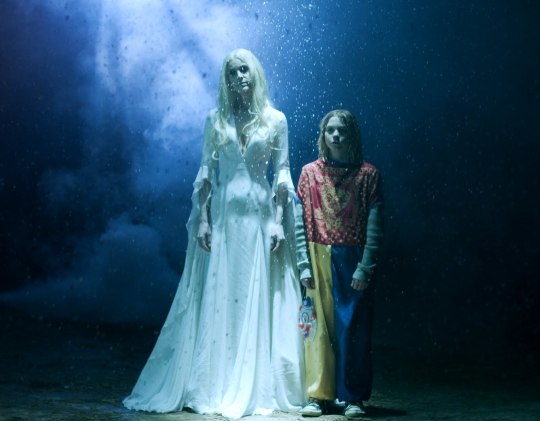
Today, I still don’t love it, but I have more trouble faulting Rob Zombie for trying to make HALLOWEEN his own, something more than a remake. He also does this by truly letting go of the Shape. The famous William Shatner mask was blown in half by Laurie at the end of the 2007 HALLOWEEN, and scarcely makes much of an appearance in this movie. Michael Myers is a disheveled drifter, literally haunted by his past, whose only real aim is to find a place to belong. It’s sort of funny, in retrospect: When John Carpenter made the first HALLOWEEN, he-by-way-of-Dr. Loomis declared Michael an empty shell of a person, someone who was simply born evil, as reflected by the empty-eyed mask he wears. For some reason, though, a whole legacy of directors just couldn’t resist trying to explain Myers away. The original HALLOWEEN II then says, “Well...what if Michael Myers is on a rampage because LAURIE STRODE IS HIS SISTER? What’s that you say? Why is that a reason to rampage? Ummmm...” And then HALLOWEEN 4 sees him pursuing other young female relations of his, and then in subsequent movies there’s an accursed rune, and druids, and immortality rites, and by the time you get to HALLOWEEN 6 you have this absurd stone soup of bad ideas. It’s a miracle that this franchise became such a thing. Rob Zombie makes the same fundamental mistake, but at least he tries it in the simplest possible way, asserting plainly that Nurture, not Nature, made Michael into a killer. Now, terminally lonely, he’s like a clown waking up in his trailer to find that the carnival left without him. Exiled from mainstream society, he seeks out what remains of his family, who, due to his own violent actions, has grown up more like him than he may have imagined.
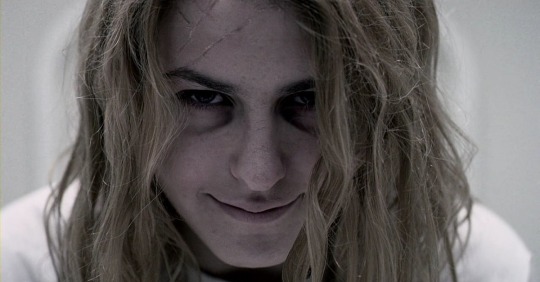
I’m not saying I think this was the best thing to do with HALLOWEEN 2. Personally, what I crave in horror movies is something that is farther beyond explanation than this--something that gesturally resembles my life experience, but that plunges past the veil of mundanity into a deeper, darker world of primordial fears and urges, addressing things that unsettle me because I cannot rationalize them. For me, horror is definitionally incomprehensible, and Rob Zombie’s HALLOWEEN diptych is fundamentally sane. But, I think what I’ve discovered is that these movies are not proper horror movies, in spite of their relentless sadistic violence. They are outlaw fables, with more DNA in common with something like EASY RIDER, than with FRIDAY THE 13TH. It’s funny to watch myself coming to a compassionate understanding of these movies that are themselves about outsiders and rejects who are specifically deprived of understanding. My goal in all this was not so much to convince people of the value of these movies, which one might reject on any number of reasonable counts, but to explain to myself why I keep coming back to them. It isn’t to condescendingly heckle them, and it isn’t just because they’re often handsome-looking, or because they’re so emotionally authentic even when the narrative is less than compelling. It must be because, even when I’ve found him challenging, I can’t help seeing Rob Zombie as a person with vision, someone who heroically eschews common consensus on taste and sense-making--the consensus even among horror fans and his own cinematic heroes--in order to say what makes sense to him personally. Finally, he has begun to make sense to me, too.
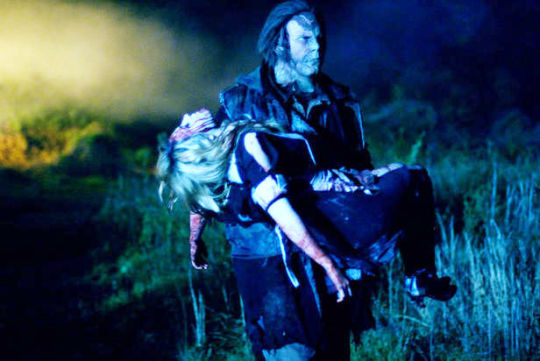
#rob zombie#halloween#2007#halloween ii#2009#blogtober#remake#John Carpenter#sheri moon zombie#michael myers#laurie strode#scout taylor-compton#brad dourif#malcolm mcdowell#tyler mane#the shape#horror#slasher#outlaw culture
147 notes
·
View notes
Text
TAGGED BY: found & stolen.
TAGGING: @saturnrang, @falsedking, @valinta + whoever come across this.
► GENERAL.
HEIGHT: 5′8 — previously 5′6. After being bitten by the genetically-altered “42″ Spider, his stature is elongated by two inches.
WEIGHT: 160 lbs — Miles is an ectomorph; it’s mostly maintained because of his obligatory participations in gym classes, playing basketball with the neighborhood every now and again after school, and the rare times he can sneak off for urban exploration or play around with his uncle’s punching bag. He doesn’t exactly have the greastest diet plan.
ETHNICITY: African-American && Afro-Puerto Rican.
OCCUPATION: Freelance photographer, explorer, artist, F.E.A.S.T. (Food, Emergency, Aid, Shelter, and Training) volunteer, Brooklyn Vision student, convenience store cashier, Dream Defender, and vigilante.
GENDER: Cis-male. He/him.
ROMANTIC AND SEXUAL ORIENTATION: Heterosexual & Demiromantic.
MBTI: ENFP- the champion. Miles know how to relax, and he is perfectly capable of switching from a passionate, driven idealist in the workplace to that imaginative and enthusiastic free spirit on the dance floor, often with a suddenness that can surprise even his closest friends. Being in the mix also gives him a chance to connect emotionally with others, giving him cherished insight into what motivates his friends and colleagues. He believe that everyone should take the time to recognize and express their feelings, and their empathy and sociability make that a natural conversation topic.
Few personality types are as creative and charismatic as ENFPs. Their enthusiasm and vivid imagination allow ENFPs to overcome many challenging obstacles, more often than not brightening the lives of those around them. ENFPs’ creativity is invaluable in many areas, including their own personal growth.
► SPECIFICS.
FAVOURITE FOOD: Pasteles, Empanada, Chicharon de pollo, Pop-Tarts, Platanos, Chopped Cheese, Nathan’s Famous’ hotdogs, Aunt Butchie’s Desserts (chocolate mousse preferably), Chinese food, and Ray’s Pizza.
FAVOURITE DRINK: He enjoys his uncle’s Whey protein drinks, but you’ll mostly see him drinking sodas, Gatorade, O.J., and water.
FAVOURITE HOBBY: Vandal by nature, Miles loves snagging Priority Mail and Hello, My Name Is stickers to practice his art and toss his mark up wherever and whenever he can. Other than that, he plays mental gymnastics for fun when it comes to math problems. If he’s not doing that, then he’s fooling around with programs like Audacity, Sony Vegas, or FL Studio.
But the activity he feels most at peace at is when he’s isolated in his room or hanging around a building as Spiderman, writing in his journal.
FAVOURITE SCENT: Vanilla, Sandalwood, Shea Moisture Manuka and Yogurt.
FAVOURITE PERSON: Ganke. Miles never had a brother (a reality he yearned his parents make happen), but Ganke gives him an idea as to how it would be if he did have a biological brother.
► TEN FACTS.
Miles is an only child. “Born” on December 14th, 2003.
He’s Catholic.
Adaptability comes as second nature to Miles. In two days, he managed to survive his near-death experiences as he tangled with some of the best of the original Spiderman’s villains.
Miles use to cry Martin Luther King Day because the television and radio would play clips of his speeches, and he thought sounded like a ghost.
Until he reached the age of ten, Miles had irritable bowel syndrome and would crap his pants every so often.
He owns an Atari, Sega, and Nintendo console passed down to him from his father.
One of his favorite shows is American Ninja Warrior.
Calculus is one of his favorite subjects. Numbers, symbols, and alphabets is a challenge that he can never tire from.
There’s an unshakable habit he has and that’s speaking his thoughts out loud, much to his chagrin.
His facial features mostly resemble his father and his uncle, which is can be considered a blessing and a curse, depending on the environment he’s in. Because the Davis brothers dark past had them as hustlers, stick-up kids, and graffiti artists, and their lives would take a drastic turn in where one becomes a cop and the other went on to become a boxer, the name Davis is enough to put a sour taste on the tongues of certain circles. It’s a fleeting love-hate thing he has for it.
► FIVE THINGS HE LIKES.
VIDEO GAMES — Jefferson was never comfortable with sharing his questionable deeds on the streets with his son, but he was more than excited to share his childhood glory with him. He couldn’t wait until Miles was old enough to have a controller in his hand. Miles is “heir” to a collection of dated collection. He likes modern consoles too, as he does own both a XBOX ONE and PLAYSTATION 4, but he prides in being a ‘young old soul’.
GRAFFITI — It just kind of happened? He wasn’t messing with actual spraypaint because he’s too young to cop them from Home Depot, so he stuck to just stacking up on stickers and using that until he’s legally able to buy his own.
HIP-HOP — That’s New York. Hip-Hop was born there. Miles passionately embraces the main four elements that represents its culture: Emceeing, DJING, Graffiti Art, Breakdancing and integrates the other five in how he moves. Street fashion, language, entrepanuership, knowldge, beatboxing, Hip-Hop is something he lives.
BOXING — We can thank Aaron for his interest in that. Aside from the man’s criminal resume, Aaron graduated from neighborhood bruiser to professional boxer. His had a impeccable record before he hung up his gloves, but the passion he had for the sport stayed with him and any chance he got with his newphew, it would show when he would spit game on the greats like Mohammad Ali, Joe Fraizer, Dixie Kid, Jack Dempsey, Tyson, and others and teach him a few of his old moves.
CLEANING SNEAKERS — It’s nothing deep. You watch Paid in Full a couple of times and add your love for that movie to your natural love of keeping your gear fresh and you get a sneakerhead that’s addicted to keeping his kicks mean and pristine.
► FIVE THINGS HE DISLIKES.
PEER PRESSURE — His hood didn’t have too many stars. There were plenty of potential there, but due to unfortunate circumstances, they make it out, but Miles—everybody regards him as the gold representation. Because of his upbringings, Miles is sort of hood royalty in a positive sense. On one hand, he enjoys it appreciation, but on the other hand, he hates it because his father doesn’t make it easy on him at all. He doesn’t judge his father for doing what he had to do in the streets to survive, but he hates his father for shoving his demons down his throat.
Becoming Spiderman was nothing to leap for him to leap excitedly over either. Being stressed with being the “good son”, the “golden boy” of his neighborhood, and acing studies was enough as is. Since Peter Parker and his uncle’s murder, he felt tremendous guilt over not being able to help, and with his abilities, he feels strong on his moral obligation to do what he can to be New York’s protector. It’s not the easiest weight for a teenager to carry.
E X P E C T A T I O N S! eff dem!
UNDERESTIMATED — In school, he dealt with a teacher that regarded him and kids like him as trash that would never be able to amount to anything. The Spider-gang didn’t think he had what it takes, making him feel as if he was a burden and incapable of being strong enough to keep his promise to his universe’s Peter Parker. He doesn’t do well with people acting like he can’t do anything.
TALES FROM THE HOOD — Doesn’t particularly care to hear about criminal exploits, especially the ones his family participated in. Some kids would love to hear about how hard their peers went in the street—Miles isn’t one of them. If anything, he wishes he was oblivious to it and didn’t have to hear one related word to it. That’s one thing he’s thankful for when it comes to his dad and Aaron. They never bragged or felt inclined to share gorey details and for good reason. Miles know they and everyone else want better for him.
LYING — His mama raised him to be a honest boy. His pops raised him to be a man of principle. His uncle instilled street honor in him. Other than that? Miles naturally hates lying. It doesn’t make him feel good and can actually make him a serious nervous wreck if it gets to be too much for him.
FIGHTING — Even though he was taught self-defense and enjoyed his boxing lessons, Miles avoided conflict as much as he could. He preferred to just be that cool guy that can make friends with the whole world and keep it pushing. He accepts that it’s unavoidable as a superhero, but that doesn’t stop him from trying to come to a peaceful resolve before the situation gets nasty.
► WORDS / PHRASES THAT ANNOY HIM.
CLASSISM — I know it’s not a word/phrase, so I’ll just say toxic braggadocio statements. When it comes to skin color, religion, abilities (supernatural or mortal), lienage, whatever—Miles views them all as people that share the same oxygen and should treat each other like they’re aware of that. Being made to feel like a sub-human aggravates him more than he cares to admit (he once broke his classroom desk because of his teacher constant poking at the african diaspora).
► PERSONALITY TYPES HE PREFERS.
FREE SPIRITS — Chilled souls; people that are down to do whatever they please (in a healthy, non-violent way), and exudes positive energy. It’s nice to be around individuals that understands what it means to have fun without restrictions and not people that live by some book like his father. You can miss him with those that feels like they have to be tight asses all the time.
► PERSONALITY TYPES HE AVOIDS.
GOD COMPLEX — Kingpins/drug lords/gang leaders/criminal upstarts, just people that play God in the streets, dictating who lives and dies, just because they have a gun and have a little bit of power. There’s not a doubt in his mind that there will be elements in the underworld that’s going to try to seduce him to the life. It’s a mission of his to not fall into the same darkness that stained the Davis name. You will never see Miles becoming close friends with a thug or a wannabee. He’ll try to steer them clear of it and be a moral compass of course, but having that as a part of his inner circle is a big no.
3 notes
·
View notes
Text
On Identity
First published in October, 2020.
At the age of fourteen, I found myself in my first online chatroom. "Asl," they asked — early Internet slang for age, sex, location. It was never self identifying information. No one was interested in names. No one cared about what you looked like. You were free to be anonymous as long as you provided a small token of details from which the rest could be inferred. Your interests were apparent from the room you were in and your avatar dropped other crumbs of personality. The concept of anonymity was still years from making sense to me yet the obliviousness to physical identity was real. The idea of a fourteen year-old from India soon became dull. So, I decided to get creative.
Some days I would be a 75 year-old living in rural Mongolia who had just purchased his first computer after selling 25 of his favourite sheep. On another, a divorced mother of three, fresh out of prison, looking for advice on everything from makeup to homeschooling. Each day was a blank slate, a new role to fill, a fresh start. Identity on the web is as literal as fiction. It could be as entertaining as you wanted it to be.
Regardless of how you chose to portray yourself, your personality was a central component to how each story was laid down. Regardless of how out there you wanted to go, to an extent, most would assume you were giving out correct information. In theory, you could be the Pope pretending to be the Queen. Not many would care but most would find it funny.
No one can judge the unknown. On forums such as Reddit, getting a new identity is as easy as coming up with a new username. There’s no one to question your motives, judge you by the colour of your skin, or ban you for being too young.
You have no age on the Internet, no gender and you have no country. Your username might change, your writing will mature over time, new subreddits will be found, some will disappear.
Yet, like real life, people can and do judge you based on certain criteria. Online, credibility is based on reputation — call it Internet points, karma, the number of followers, likes, etc. To some online services, these signify your commitment to your role. Like seniority in a real life occupation, Internet points signify how long a profile has been around. The Reddit karma system which was primarily developed as a reward mechanism also serves as an easy way to distinguish between credible profiles and inflammatory and digressive posters — trolls. If you post worthwhile content, you get upvotes — points! On the other hand, if people don’t like what they see, you get negative points. Unlike the virtual world, physical age plays a very important role in real life in determining your credibility. It gives people an easy excuse to ignore your opinions depending on how old you are while giving way to cultural cliches such as respect your elders or tradition is sacred. One of the harshest — kids are stupid might almost seem like a mathematical axiom but ignores certain aspects of the child that are seldom found in adults such as the ability to quickly master languages or adopt new skills.
ASL in the offline world is very much like the Internet. The major difference is that it’s much easier to catch someone lying. As an Indian teenager, I could never pretend to be a 75-year old Mongolian even with the best makeup advice. Yet, there were other ways to pretend. At the time, I thought of myself as shy but I could still stir up some confidence when I had to talk to strangers. I only had to pretend to be charming, smart, and interesting. Society even had my back. “You can be anything you want to be when you grow up,” they told me at school. “Always dream big,” they proudly added. Years later, I realized all these statements only translated into, “get a bigger salary.” So, yeah, they were pretending too. Eventually I came to the conclusion that everyone was pretending. Everyone I interacted with had a story to tell. They all had a big bag of words that they used to confidently describe themselves. Most interesting of all, they all took the story they told themselves and others very, very seriously and would happily clock you in the mouth if you merely hinted at anything otherwise. Like calling someone out in the chatroom for their alleged fakery, painting someone as a liar in real life was akin to assault. But my conclusions weren’t based on some impulsive thought. They were carefully considered observations. The wall of pretense we erect is not even a conscious decision. Almost always, it is based on years of cultural indoctrination.
Who are we?
Culture is a weird one. The typical North American and South Asian of the 1950s could be considered living centuries apart from each other. The Indian, most likely an illiterate farmer barely making ends meet, could not dream of life in the American Golden Age — minimum wage that could pay for two cars and a mortgage. He could not conceptualise the existence of luxuries such as refrigerators, ovens, swimming pools and shopping malls, hospitals and discotheques, or the ability to travel the world on tips earned while bartending. The average Indian farmer desired healthier bulls, better harvests, regular rainfall, obedient wives for his sons. But then, as much as now, drastically different cultures still overlap in certain ways. The Indian farmer, much like his American counterpart, looked to his neighbour to understand himself. If the Jones next door bought a fancy new car, everyone living in the neighbourhood wanted something better. If the Kumars next door threw a huge wedding for their son, inviting everyone from the closest twenty villages, the Chopras dreamt only of throwing a larger party next year. The collective psyche of each culture is only a reflection of the desires of each individual. But cultures, homogeneous or otherwise, are an echo chamber. They consciously or subconsciously produce edicts, rules and regulations that individuals integrate and pass on. Whether it’s capitalism good, communism bad in the American psyche, or India good, Pakistan bad in the Indian, from economic policy-making and government initiatives to television programming and pop art, everything must adhere to cultural norms and traditions. Unless it fits the identity of the collective and follows a cultural narrative, it will be discarded.
Take the never ending list of Indian god-men and celebrities who are routinely treated as infallible figures worthy of worship. Devotees are often so unflinching in their faith that they are willing to overlook overwhelming evidence of rape, murder, exploitation and extortion. This is not unique to India. Charismatic personalities have sway over swaths of people all across the world. Whether it’s Trump, Duterte, Bolsonaro or Modi, the ability to pander to the masses and speak to the cultural norm is more important than competence at one’s job. Trump gave voice to a collective that was scared of immigrants taking over their jobs. Years later, his ineptitude would lead to one of the worst administrative failings in American history and the death of over 400,000 people in the course of the pandemic. The actions of the Indian government during the second wave need no mentioning.
In many countries, questioning one’s cultural norms is akin to treason. Similar to questioning a person’s opinions, questioning the integrity of a political ideology often leads to terrifying consequences. The BJP’s rise to power in India has been followed by the arrests of intellectuals, academics, students, poets, and doctors for voicing opinions against the party. This is quite the routine for authoritarian governments. In the 1950’s, Mao Zedong’s government in China persecuted and killed half a million of its educated populace before launching the Great Leap Forward, a project that aimed at transforming China from an agrarian economy into an industrial power. While it looked great on paper, it led to the greatest famine in history and resulted in the deaths of at least 20 million people. This failure politically weakened Mao. In response, he launched another program to weed out and eliminate dissidents, killing another million in the process while leading to the destruction of thousands of Chinese historical and cultural artifacts. What was the outcome of this violence? It only strengthened Mao’s hold over the masses. His personality was now a cult.
To call humans sheep would be unfair because sheep are never pushed off a cliff by their masters. Human societies, on the other hand, are rife with power struggles, deep hierarchies, discrimination, and violence. Yet, each of us identifies as a good person. We can rationalize why we are good, therefore we must be good. No country in the world would ever think about labeling itself as a force of terror, cruelty, and animosity, but we can easily call “the other” any number of names. We look to our family, friends, and society to support and reinforce these views — call them nationalism, patriotism, freedom, equality — regardless of how accurate or even relevant these views might actually be.
Oscar Wilde said, “Most people are other people. Their thoughts are someone else’s opinions, their lives a mimicry, their passions a quotation.”
Our identity does not quite work in favour of our individual or collective happiness. We associate a feeling of national pride towards statistics, numbers, and symbols. Rising GDP is popularly correlated with the “wealth” of a country, but many forget that this number just smashes together a country’s total economic output over a period of time without distinguishing between “good” and “bad” economic activity. Even the man who came up with the concept, Simon Kuznets, was of the opinion that the number had nothing to do with individual well-being.
We look to our history to understand where we came from without realizing we have many incomplete pieces to an enormous puzzle. Many contemporary Indians would associate themselves with the iconic Indus Valley civilization and think of the core of their cultural and religious identities as unchanged for thousands of years. However, the morals and the values carried by the average Indian today — monogamy, marriage, vegetarianism, holidays and celebrations, rites and rituals — all stem from thousands of years of mingling with the outside world. What we define as violent invaders and conquerors today have played an important role in shaping our culture into its current form. Not only did the Mughals contribute to our aesthetics and our lexicon but they also brought with them mathematics, science and philosophy. Global trade helped carry the Indo-Arabic number system (the numerals 0 to 9) to Africa, Europe, and eventually to the rest of the world. The British brought their own legal and judicial systems, passed down from the Romans, the railway infrastructure, and a bizarre penal code which sought to divide the subcontinent culturally, morally, and geographically according to their own prudish Victorian attitudes.
Hinduism, a major global religion today, has its roots in the Vedas, a collection of manuscripts believed to have been written by ancient sages at least a thousand years before the birth of Christ. The Vedas described the lives and spiritual pursuits of the priestly class, the Brahmins of ancient India. Before being written down, they were orally passed on from teacher to pupil. The Vedas described the lives of gods, rites and rituals, spells and incantations, all of which have their roots in even earlier animistic traditions, or the worship of animals, plants and nature — a theme common to the birth of nearly all religions. These texts were central to the agrarian communities that inhabited the Indus Valley. However, one might be hard pressed to call this Hinduism. These ancient traditions later branched out into numerous schools of thought such as Samkhya, Nyaya, Vaisheshika, Yoga, Mimamsa, and Vedanta, each with their own unique set of philosophies.
Due to the geographical scale of the Indian subcontinent, the diversity in language, culture, and race, the ideological descendants of Vedic traditions were in the hundreds, if not thousands, and were regarded as a way of life by those who practiced them. The word ‘Hindu’ was simply used to describe people living near the Sindh, a river that flows through the northwestern part of the subcontinent. The word had nothing to do with the individual beliefs of these people. The modern form of Hinduism developed in the 18th century through reformist movements started by Ram Mohan Roy who wished to rid Hindu traditions of superstition and promote rational and ethical ideas about the religion. Thinkers such as Dayananda Sarasvati, Paramahamsa Ramakrishna, and Swami Vivekanada, would develop the idea of a unified Indian continent and seed missionary movements that brought Hinduism to the shores of Europe and later, the United States. Savarkar, who used the term hindutva to describe ‘the quality of being Hindu’, brought on a politically-charged connotation to Hinduism. This was further fueled by the Indian Independence movement that promoted the idea of ‘India as a Hindu nation’ before the eventual partitioning of the subcontinent along religious lines.
It is a topic of much debate whether an organized and unified Hindu nationalist identity that brought the sheer variety of the subcontinent under one banner to overthrow colonialism would have naturally evolved without the presence of the British Raj. More importantly, the idea of a ‘Hindu nation’ starkly contrasts the cultural openness of the early inhabitants of the subcontinent, and their acceptance of hundreds of cultures and different belief systems, which is ironic considering the foundation of Hindutva is based on the myth that India has always been a country for Hindus.
What are we?
Does my cat know he’s a cat? Do animals know of themselves? What about viruses and bacteria? You might say no to all of these questions and state that the ability to know oneself is unique to homo sapiens. The correct answer is debatable but not really the point I am trying to make. What if I asked you what you made you believe you were human, or conscious, or even real? There is good reason for you to believe in all of those things because you might think it’s ridiculous to believe we are just deterministic machines running on genetic code. Surely, we must have free will. Surely, we must be the most intelligent byproduct of evolutionary pressures. Surely, we must be the only creatures capable of stewarding the Earth. Surely, we must be correct about the things we know and accept as fact.
How comfortable would you be if none of these were true? I won’t attempt to answer these questions here because these are an entirely separate discussion but my point is that we believe we are a number of things only because we have identified with these beliefs for a good portion of our lives. Like the Ptolemaists who believed the Earth was the center of the Universe, or Creationists who believe ‘the Earth is 6000 years old and dinosaur bones exist only to test our faith in god’, there may still be numerous misconceptions of reality that we accept as common fact. Regardless of what these beliefs are, it’s critical to understand that our beliefs are our identity. Through many years of indoctrination, people on opposite sides of the Korean Demilitarized Zone still identify as human beings, but their world views are starkly different. One might defend the ideals of capitalist society while the other might think his leader is god and gladly give his life to protect this belief.
There is no distinguishing between one’s beliefs and oneself. Our beliefs form our habits, which in turn form our personalities. We live our lives from the point of view of our beliefs; a home forged from our own subjective interpretations of the world. We hold ourselves accountable to our identity; define ourselves with tokens of adjectives, layers of tradition and symbolism, while in the meantime, we fight to preserve every shred of it, and live the rest of our lives in a struggle to cultivate it. We try to keep it sacred, unique, and immutable. Otherwise, we ask ourselves, what is the point? We work tirelessly to make sure we’re not just another cardboard cutout while raking in trophies, certificates, photographs, children, exclusive club memberships, Internet points — anything to expand our fairytale legacy; anything to suppress our natural mortality and increasing vulnerability. We judge ourselves not through the motivations, beliefs or struggles of others; we judge others based on ourselves. Identity is a relational web. It is a comparison sheet we use to analyse our place in the world. It helps us weave a meaningful story to answer difficult questions such as: What am I? When did I begin? What will happen to me when I die?
No one is born religious. No one is born to identify with a particular piece of land. No one is born to identify with a particular political party. No one is born as a specific identity. We are all simply products of indoctrination. Every single day, from the moment we are born, our education begins — not towards an ideal of truth but towards survival. The agenda of the education system is only a reflection of the cultural landscape it inhabits. Perhaps only science can claim the ability to course-correct and steer its way towards better models of the universe. Humans, meanwhile, are not so flexible. Between years three and four, most children start forming opinions about the world and themselves. I am this. I like that. This young identity is shaped through an education system whose primary objective is passing exams, failing which the child is immediately labelled as stupid. The child is routinely compared with their classmates, labelled any number of things — shy, honest, hardworking, problematic, unmotivated. Their place in the world begins to solidify. The child, in most cases, assimilates these assessments as accurate characteristics about themselves, never questioning their validity.
Over the course of a lifetime, many layers of identity are crafted and worn, each accentuating every other. Our identity has an appetite. It must consume knowledge and meaning or risk starvation. Some may be consumed by this hunger, turning into narcissists and megalomaniacs. Others might see through the illusion. Yet, most people never manage to leave their opinions behind, not enough to provoke a different perspective because the need never makes itself apparent. Most people internalise their self-beliefs themselves to the point where they are defined by them. People tend to stick with people who think like they do. They fall into a loop of self-compliant views and confirmation biases. Eventually, this simplistic view of the world and the self becomes hardwired and impossible to outgrow. Anything that challenges these hardwired beliefs is first ignored as fake news, but eventually, it brings forth an increasingly agitated response. The stronger the hold of identity, the greater is its tendency to fight back against change. People might call themselves vegan, neo-marxist, jazz aficionados, liberal, Muslim, pan-romantics, Indian first, Maharashtrian second, [enter artist’s name]’s biggest fan. They might have good reason to suspect these words as truth. Regardless of their accuracy, these are just layers of identity, to be worn as per the demands of the situation, like seasonal clothing.
When people communicate, it is a specific identity that does the talking. When I am speaking to my boss, I wear the mask of a loyal employee; when I am speaking to my son, I wear the mask of a loving father; with a stranger, all the politeness I can muster; with a foe, skepticism, mistrust, anger. We carry countless and distinct identities, only to utilize a specific ASL — a condensed and limited disclosure of the ego based on the situation and circumstance. These are like webpages which hide the underlying HTML, CSS, and JavaScript code while only showing you what you wanted to see — a funny cat video. The individual’s relational web grows with every new encounter, every new discovery about the world. It begs to answer only one question — Where is my place in the world? The relational web offers a map to reality; a model that seeks to understand and tailor itself based on experience. This is an intrinsic biological mechanism without which the ego cannot survive.
Our identity is life itself. It is the very antithesis to death. These are polar opposites: creation and destruction. Identity forges meaning while death snatches it away in an instant. While the pursuit of meaning is a lifelong endeavour, ageing is a paradox. Ageing in the modern world is the contradiction between wanting a longer life as well as infinite youth. A trillion-dollar anti-aging industry that only seeks to postpone the inevitable, is testament to this fact. In the meantime, all we are left with is the pursuit of polishing our individual story. Some might cherish the annual event that signifies the day they were born while others might hate it, resenting the lives and achievements of others associated with a smaller number while casting everyone else into a basket of irrelevance. Perhaps this is why the shadow of anonymity offered by the Internet is such a comforting place to live. But whether offline or online, my ASL is whatever I want it to be as long as it gives me the joy that I seek and the comfort I need to go on.
There is no point in living in a cage of dubious and limiting self-beliefs. I am not suggesting you could fly simply by identifying as a bird. I am merely suggesting identity is an emergent phenomenon. It is a continuous carving and remodeling of the ego. It evolves in response to experience of an immediate environment because it is essentially a tool evolved for survival. With that knowledge, at the very least, it might bring you a step closer to staying open to new ideas and possibilities. Just don’t take yourself too seriously.
0 notes
Text
Journaling
Last year:
The visitation of Dakinis through my body, in the form of Yumi; that crazy witch! who haunts and loves me still in the aftermath of her blazing wisdom...
...of course, there is not exactly a ‘me’ left --> rather, there are memories and re-memberings, a sense of the aggregates of
Form (this body)
Sensation, Perception,
Volition and Consciousness
having become heaped upon with the karmic con-sequences of the sequential cons of karma.
The bliss of Samsara was exactly Awakening...
Now, there is a sense of my non-binary Being as a ‘stable’ sense of knowing, and of course this is exactly non-binary with confusion, with vacillation ‘between’ an ‘existing’ binary which needs neither navigation nor dissolution since it is already empty and not in the least bit located as Real, not in the least!
***
After reading Jaron Lanier’s brilliant
“Ten Arguments for Deleting Your Social Media Accounts Right Now”
I finally went ahead and deleted my account last night.
So technically, today, Monday 18th June 2018 would be Day 1 of being off of Facebook. Admittedly, I am struggling a bit more with the idea of getting off of Instagram; I had already been, for some time, weaning myself off of dependency on Facebook, though it lingered in the background as a place for my voyeurism (and as a catalyst for generalised chronic social anxiety; not because I thought others had it ‘better than me’ or whatever, but only in terms of encountering the Samsaric omnipresence of rage, and wounded resentments of my already multiply-marginalised friends... I was and am no longer convinced that it was healthy for my mental health OR for our longer term political survival, despite the clearly GREAT things about the medium (e.g. that the disparate rag tag group of us might be aggregated as a network of ‘friends’ in the virtual-ised safe space of my Newsfeed and/or particular Facebook groups).
Lanier’s point in his book on why we should delete our social media accounts boils down essentially to the argument that, in their existing form (particularly platforms like Facebook and Instagram), it is a zero sum game. Their business model is based off of mysterious algorithms that intend to keep their users hooked by fine-tuning our dopaminergic responses to what is shown on our feeds, while maximising the likelihood that we will click on advertising links that cater specifically to the triggered insecurities in ourselves. Given such a model, what has happened is the dangling of the carrot of ‘connectivity’ and ‘friendship’ and for that matter, the promise of popularity, a throng of fans supporting our own righteous causes, etc., while at the same time all of this being foundationally contingent on our giving our consent to being psychopolitically manipulated to remain on their platforms.
Now of course, we can argue that this is no different from any other for-profit business. With one caveat: In the case of Facebook and Instagram, because of the nature of the technology, this necessarily selects not only for that which will give us the most instant pleasure, but also that which gives us the most anxiety; after all, it is the most outrageous kinds of things that will be most likely to elicit a click-bait kind of response; as a result,
Truth is compromised,
and knee-jerk paranoid reactivities are prioritised in terms of what ultimately gets shown through all our scrolls through...
Of course, I am writing here as a racialised queer person (as a 3rd culture kid of MalaysianChineseAustralian heritage) who was networked disproportionately with other folks who experience multiple interstices of oppression; The medium is the message --> In addition to already living challenging everyday experiences, Facebook exacerbates this by normalising a kind of ‘discourse’ in which the loudest, brashest, and most extremist forms of polemic, including of those on ‘our side’ are disproportionately represented on my feed... even if it is only to trigger my emphatically reactive disagreement ... This in itself is a ludicrous manipulation of our tendencies to ethnocentrism...
***
In choosing to quit Facebook, I was not and am not intending to make a comment about its being ‘all bad’; I am genuinely scared and grieving some of the aspects of what was possible for me in communication and creativity as a result of my using Facebook (e.g. instant-shares and feedback around poetry, political thoughts, etc.) that I am unlikely to find any easy replacement for. Additionally, I am aware that professional opportunities have come my way in the past because of connections through Facebook, that will now likely diminish as I have chosen this particular bridge to burn as I consider my next steps in how I want to relate more healthfully in my own constructions of truth and meaningness...
The mandala of my FriendList, already meticulously parsed out according to whether I would be comfortable outing myself as trans/non-binary/femme to them as particular individuals, or whether we shared religious proclivities, whether they were people of colour like me, etc. had become unwieldly, insofar as I noticed that I was spending more of my time giving my creative and intellectual labour away on Facebook for free (self-justifying this as being about the generativity of intrinsic motivation) than I was focussing on connecting with friends in real life, and outside of the quiet safety of my own home as I have been managing a ‘social transition’ (of my gender identity ... largely, in other words, in my own head, and mediated through the gazes of those who saw me as filtered through the internet).
I have chosen to quit Facebook, because I think, in part, I would like to figure out what it might mean to go through my transition without being further influenced by those particular algorithms which root any kind of egoic investment in the conditions of anxiety, precarity, and only illusory solidarities with ‘frenemies’ who seem more eager to tear down what is disagreed with, than to lift up what is good and offer constructive feedback for what might be improved...
*
To be clear, I do not think that these habits are inherent in the particular individuals who may have indulged most in this kind of rhetorical battling... Facebook itself has normalised a culture of paranoia in which perfectly rational actors are, in fact, perfectly rational by operating from a baseline of battle, poised for war. After all, when it looks like hundreds of real people are espousing vile opinions and perspectives that cause genuine harm to those who encounter them, it does take a kind of heroism to speak out and speak back, and shut it down as quickly as we can... right?
...Not if, of course, in the first instance, those hundreds of horrible perspectives are actually just amplifications of pre-existing tendencies, tendencies that may themselves find their way into the habits of those on ‘our side’ ... I found myself balking at the extent to which perfectly good people, ‘friends’ (i.e. colleagues, ex-colleagues, wider-networked folks, friends of friends, etc.) wounded by the pathos of imperialism, colonisation, racism, cishetpatriarchy and so on, started to engage in the very behaviours that we denounced in our political opponents:
--> Bullying
--> Exaggerated polemics
--> Outright lying (i.e. making up ‘facts’ that are not facts)
--> Refusing accountability
--> Tearing down those who try
--> Calling on friends for money and business and then refusing accountability for exploitative practice
I realised soon enough that there was no way any of this could be remedied through the medium ... It was the medium itself that was rewarding this --> After all, even if none of us genuinely like this, the culture of fear and paranoia it engenders creates a wolf-pack kind of situation, where it is the pile ons, the likes and the dislikes, the drama created, etc. that feeds Facebook its money, while those of us whose lives and mental health have been stirred up in addiction to the use of the platform itself are being mined for our habits of use (I am more likely to remain on Facebook if I am still-stuck angry with some shit-poster, for example, than I am if everything was already-resolved and I was already-happy with my life), and then being subjected to more and more information that would be targeted to trigger us in our (otherwise justifiable) angers and passions.
***
I am only now beginning to realise how fucked up I have become from having spent so much time in my young adult life being molded by these terrible logics under neoliberalism. The paradox of capitalism, in this sense, is that I cannot now deny any of the good things that came from my use! I learned new vocabularies, was exposed to new perspectives, etc. etc. At the same time, I am now committed to engendering new ways of relating to others in my life, including investing more deeply in fewer friendships, so that I can be far less lonely and angry than I have been, and perhaps so I can stop viewing any potential friend from the perspective of how quickly I can tear them apart for something wrong they’ve done, and perhaps instead look them in the eye and allow my heart to melt a little bit before offering loving kindness that bolsters all of our humanity, in the service of a healing that is desperately needed, in this age of fascist precarities.
1 note
·
View note
Text
Refusal after Refusal
What if we acknowledged that we had fallen out of love with architecture and couldn’t remember why we loved it in the first place? That we had given up on building long ago because we had no interest in collaborating with developers, in designing money-laundering schemes or parking garages for foreign capital? And what if we told you that now we even found architectural discourse repulsive? That we had seen the logos for the oil companies emblazoned at the bottom of the biennial posters and couldn’t look away?That we had read the disinterest on the faces of the public and could relate? That we had watched academics lecture about labor practices while exploiting their assistants and overworking their students? That we had tried to warn each other about abusers and assaulters and were reprimanded for it by our heroes? What if we confessed that all this made us depressed, that we could barely summon the energy to get out of bed, let alone to work? What if we told you that we were beginning to think work itself was the problem?
2. The summer was hot. The hottest on record in Los Angeles and Montreal, Glasgow and Tbilisi, Qurayyat and Belfast—though records are easily broken these days. Everything appeared out of focus. The edges of our thoughts were blurred. According to studies, heat makes you lazy and unhappy. But sometimes your unhappiness supersedes your laziness, and sometimes your laziness indicates something about your unhappiness. We decided to try learning from our laziness.
3. It was Karl Marx’s son-in-law, the Franco-Cuban radical journalist and activist Paul Lafargue who first articulated a “right to be lazy.” He equated work, and its valorization, with “pain, misery and corruption.”He argued for its refusal. “A strange delusion possesses the working classes of the nations where capitalist civilization holds its sway,” Lafargue writes. “This delusion is the love of work,
the furious passion for work, pushed even to the exhaustion of the vital force of the individual and his progeny.”
4. But, as Marcel Duchamp reminds us, “it really isn’t easy to be truly lazy and do nothing.”
5. “Sleep is a sin,” say the architects. Equipped with coffee or speed, they avoid it at all costs—sacrificing the body for the sake of the project, for the eternally recurrent deadline. When finally the suprachiasmatic nuclei demand submission to the ticking of the circadian clock, they curl up beneath their desks. They wear all black to minimize time spent worrying over clothes. They marry other architects for the sake of having a synchronized schedule. According to a recent study, architecture students sleep less than any others, averaging 5.28 hours per night. More often than not, this is a performative demonstration of their dedication to their studies rather than a necessity, a time-honored ritual of masochistic devotion. In his 2013 book 24/7: Late Capitalism and the End of Sleep, Jonathan Crary interrogates the neoliberal dictum that “sleeping is for losers.” Where time is money, sleeping is “one of the great human affronts to the voraciousness of contemporary capitalism.” Architects embody this attitude, imagining the stakes of the project—a luxury condominium, an arts center—as life or death. In fact, considering that sleep deprivation has been linked to premature death, it is their own lives that are put on the line.
6. Yesterday I woke up around 8:30 a.m. and took 450 milligrams of bupropion, 50 milligrams of Lamictal, 5 milligrams of aripiprazole, and 200 milligrams of modafinil, all swallowed in one gulp of coffee. (The modafinil—a medication used to treat shift work sleep disorder, among other things—is new, added by my psychiatrist last month when I complained I was having trouble working, or doing much of anything.) A few hours later, I took 20 milligrams of Adderall. Only then was I able to write this paragraph.
7. Beginning with their schooling, architects are routinely required to invest more money than they will ever receive in compensation and workplace protections. While the typical college student in the United States accrues an average of $29,420 in student debt, the architecture student is saddled with an average of $40,000.After graduation, the architectural employee can expect to work 70 hours a week for approximately $70,000 per year—or $15 an hour. And yet, as Bjarke Ingels has stated about the profession’s long working hours, “That’s the price you pay but the reward you get is that you do something incredibly meaningful if you actually love what you’re doing and you’re doing meaningful work."
8. In other words, architecture is a form of labor that masquerades as a labor of love. It contains within it the promise of fulfillment, of happiness. In her book The Promise of Happiness (2010), Sara Ahmed interrogates the normative function of happiness, how it serves as a means of orienting behavior and, in the process, is often deployed as a justification for oppression. That is, what it means to be happy is circumscribed culturally. “In wishing for happiness we wish to be associated with happiness, which means to be associated with its associations,” Ahmed writes. Work should make us happy and fulfilled—even more so when it’s “creative,” an assumption imbued with classist undertones. This draws young people toward architecture school; it makes the burden of debt, harsh working conditions, and low wages appear as an acceptable “price to pay.”
9. But, as the figure of the dissatisfied “CAD monkey” illustrates, the labor of architecture falls short of this promise. Conditioned to believe that fulfillment emerges from creative autonomy and expression, architects instead find themselves laboring over bathroom details or stair sections, and a sense of alienation emerges. It’s a feeling that parallels that of the industrial laborer described by Marx—more so than many architects would like to admit. In classic Marxist theory, workers are estranged from the fruits of their labor, which are taken away from them in the process of becoming rendered as commodities. Because it is understood as nonalienating work, to feel alienated in architecture becomes a sort of double-estrangement. Not only are you estranged from the labor, you are estranged from architecture itself.
10. While working as a studio manager at a New York architecture firm, my colleagues would often remark wistfully that they could rarely attend lectures or engage with discourse as I was able to do. Models, budgets, schematics, client meetings, site visits, overtime, and weekends at the studio had ravaged both their physical and spiritual capacities to participate in the field in a role beyond producing architecture with a capital A. Their passion had become their drudgery; their very own commitment to architectural work became the barrier between contributing to what they had imagined architecture could do and how it apparently must be.
11. I read somewhere that depression is the failure of your neurons to fire like they used to. There’s something ghostly to it: you have the memory of a feeling, of an association, but can’t conjure it anymore. Is there such a thing as a depression specific to architecture? How would it be characterized? I wrote a note on my phone: “The loss of belief in the possibility of designing a different world. Nostalgia for the future.”
12. To express dissatisfaction or alienation in architecture carries deep risks. For one, it could cost you your job. “If you aren’t happy, then leave. Others would kill to have your job.” It could also brand you as an outcast, as if marked by some internal failure or incapacity for feeling what everyone else does. And such a killjoy would ruin the mood of the office. That is, as Ahmed asserts, happiness is framed as a duty to others.18 Misery is contagious and therefore irresponsible. So, regardless of how overworked you are, how alienated you are from the products of your labor, how underpaid you are, how often the boss touches your ass, you must grin and bear it. There’s a reason why architects rarely organize to fight back against exploitative work conditions. Be happy, or else.13. According to Pierre Dardot and Christian Laval, a mandate to appear happy, which they term the “performance/pleasure apparatus,” underwrites neoliberalism more broadly.19 Today, the individual must not only produce more but also enjoy more—and, pivotally, this surplus of pleasure must be performed. Pleasure serves as a signifier of the subject’s value within a socioeconomic system in which self-edification is substituted for the social and responsibility is privatized. The flip side of the burned-out professional is the determined young architect who spends their free time attending lectures or writing essays or designing their own projects. Such work is valorized as a signal of their commitment to the field and an indicator of their value as an intellectual practitioner. This fuels a culture in which the products of extra-professional labor are exhibited in journals or galleries, often without adequate compensation. We’re told we should feel honored to have such work recognized at all. In other words, today, nothing is work, and everything is work. Even our bodies and minds are objects of labor.14. I was working hard on an essay about work—about the disconnect between discourses on architectural labor and the broader economic context in which the discourses themselves are produced. I stumbled upon an interview with Antonio Negri in which he explains how, by 1965, the architecture school in Venice had become a center for political agitation and organizing. In early 1968, students from Venice and Padua joined forces with the workers at a nearby Porto Marghera factory, the largest petrochemical complex in Italy, where “two kilometers from the most beautiful city in the world hundreds of workers were dying of cancer, literally poisoned by their work.”20 Negri states that the union of students and workers “worked out quite smoothly because they had been in constant contact for a decade: the school of architecture was a gathering place for the working class.”2115. This struggle was a major event in the development of autonomia operaia, or autonomism, a political movement that defined postwar Italian politics and in which Negri played a central role. The solidarity between the academy and the factory was a significant aspect of autonomism, which reconceived of the position of the intellectual within leftist politics. Rather than develop theories upon which to base organizing, the intellectual should learn from work, from the workers and their lived experience. In this way, the autonomists transitioned from a demand for better working conditions to a critique of work itself, in which they understood labor as a totalizing process of subjectivization that saturated not only the factory but all of society. They thus displaced the centrality of the static figure of the worker and the working class with an understanding of social class as always in a state of becoming, transforming alongside conditions of work. Work itself—its valorization and the power this gave it over the experience of life—was the problem. “Refusal of work means quite simply: I don’t want to go to work because I prefer to sleep,” writes Franco “Bifo” Berardi. “But this laziness is the source of intelligence, of technology, of progress. Autonomy is the self-regulation of the social body in its independence and in its interaction with the disciplinary norm.”2216. But wait, haven’t we had this conversation before? Isn’t the struggle against work what we studied tirelessly to ace our papers? We worked our bodies and our minds through the night to prove we understood what the refusal of work was about, to prove our political awareness, to garner a critical edge, to be diligent students. But clearly this feverish ambition prevented us from recognizing ourselves as the products of its failure. Why regurgitate the past if not in order to understand how it landed us here, at 4:00 a.m., exhausted, verging on panic, and for what? 17. As Berardi elaborates, struggles for autonomy produced a new monster, laying the foundations for neoliberal economics and governance.23 When workers demanded freedom from regulation, capital did the same. The monotony, rigidity, and harsh conditions of the industrial factory gave way to flexible hours and jobs (in the Global North), but also deregulation, precarity, and the withdrawal of social protections. This shift was ideological and cultural, as well as economic.18. “Work is the primary means by which individuals are integrated not only into the economic system, but also into social, political, and familial modes of cooperation,” argues Kathi Weeks. “That individuals should work is fundamental to the basic social contract.” Under the contemporary neoliberal regime, work has come to be regarded as “a basic obligation of citizenship.”24Within the realms of politics, the media, and even sociology, the persistent messaging of its importance has generated a singular world-building experience where working remains the only means of belonging. “These repeated references to diligent work,” as David Frayne remarks, “function to construct a rigid dichotomy in the public imagination.”25 Those who work acquire social citizenship, while those who do not are leeches. Within this dichotomy, work becomes a choice: there exist only those who choose to be productive and those who choose to do nothing. “Which are you? The sleeper or the employee, the shirker or the worker?”2619. What if we told you we don’t refuse much of anything? What if we told you that we ate up praise like a spoonful of honey? What if we said that the validation always evaporates too quickly? Like a sugar-addled rush, we work on the premise that the next project will leave us satiated. We make promises to stop, to slow down, to regroup, to prevent the inevitable burnout, which leaves us languid and shrouded in shame. We wonder what all the research amounts to, what the interviews and panels in galleries and lecture halls even do or mean. 20. If the autonomist refusal of work helped produce a society in which there is nothing but work, what strategies are left for us? What would it mean to refuse after refusal? To stake out a position of alterity to the contemporary work ethic in order to find the room to question where we’re going, what’s driving us, and to what end?21. To work is to be normal. To work is to be socially acceptable. In order to comprehend the commitment to the drudgery and exploitation of working life, Lauren Berlant argues that normativity must be understood as “aspirational and as an evolving and incoherent cluster of hegemonic promises about the present and future experience of social belonging.”27 To rally for any kind of alternative beyond the moral imperative to work would be to cast oneself almost entirely outside the realm of affiliation, and even personhood.22. Architecture, today at least, is like work, an end in itself. It is autotelic—or, more precisely, a constituent element within the autotelic metabolism of contemporary capitalism. The need for shelter is hardly the driving motivation behind the majority of new builds. Rather, demolition and construction serve as the two poles of a coiling system of endless production for the sake of production. Financial speculation, warfare, and environmental desecration belong to its arsenal. All together, this system constitutes a global force responsible for the lion’s share of global carbon emissions. It results in the mass displacement of the poor and marginalized. In short, shelter is not the ends of architecture—it is its collateral damage. It is a question not of architecture or revolution but, rather, of architecture or survival.23. “If design is merely an inducement to consume, then we must reject design,” said Adolfo Natalini of Superstudio. “[I]f architecture is merely the codifying of the bourgeois models of ownership and society, then we must reject architecture; if architecture and town planning is merely the formalization of present unjust social divisions, then we must reject town planning and its cities—until all design activities are aimed towards meeting primary needs. Until then design must disappear. We can live without architecture.”2824. Let’s back up a bit. What produces this all-consuming, obsessive indifference to architecture? On the one hand, the profession and the academy are sites of violence, ridden with sexism, heterosexism, racism, classism, ableism. But, perhaps even more than that, we have yet to find a work of architecture that is capable of changing the status quo. On the other hand, we’re obsessed with the belief that it could, since, at the end of the day, all architecture changes the status quo—converting land into capital, emitting carbon dioxide, displacing people. In other words, we acknowledge architecture as immensely powerful but find ourselves—and all architects or architectural thinkers—powerless. Architecture, it seems, has been swallowed up by external forces and put in the service of the smooth functioning
of the city and of flows of capital. We can’t imagine an architecture capable of disrupting this. Formalism is a dead end—novel forms are just a means to produce new terrains for the expenditure of surplus capital. We have little control over program since we’re beholden to patronage. Meanwhile, criticism has no bite; speculation, no value; theorization, no impact. Academia and institutions defang all thought. 25. We believe that the problem of work is at the center of all this. The need to work—a shared condition for all but the very wealthy—means we can’t really turn down a client or an opportunity to exhibit or an adjunct teaching position. Refusal, done alone, is a privilege few can afford. But, alongside that, the culture of work has seeped into our souls. Affirmation produces dopamine. Success signals
security (even if, in actuality, it doesn’t offer it). Everything we do is for the sake of capital, whether social or material. We look for opportunities to tear each other down so that we can rise up an imaginary rung on an imaginary ladder instead. We are cowards, unwilling to bite the hand that feeds us strychnine-laced food. We can’t pause to think. We’ve lost all hope in the future.26. When commissioned to write this essay, we were asked to provide “concrete alternatives” to the present—but how could we? All we can speculate on is having the time to do so. All we can imagine is a horizon, hazy and distant, in which we discover, or remember, how to refuse—together.
http://www.harvarddesignmagazine.org/issues/46/refusal-after-refusal?fbclid=IwAR3OA3zuZGwx0-VuEEM2QWZlP44uF2N6MFKoD8M2fUudNZnkNjnj4brp2nk
0 notes
Photo

Kevin Cage of @spotlightsaga reviews…
Untucked (S09E06) Snatch Game
Airdate: April 29, 2017 @wowreport
Ratings: 593,000+ on @youtube as of 6/15/17
Score: 8/10
**********SPOILERS BELLW**********
I made a specific contestant a promise I would go ahead and watch Untucked to not only highlight the juxtaposition of my styles of writing when it comes the two totally different series (one competition, one what’s morphed into a show of spirit and sense of community), but also because Drag Race is simply a tough one for me to review. I have a lot of respect for everyone that comes on the show and demonstrates that ‘fire’, and I get caught up in trying to both critique ‘Drag Race’ as the competition style calls for and pad my blunt critiques with humor that can be sometimes taken the wrong way. Last week’s 'Untucked’, I focused heavily on Nina, I recognized a pattern, certain tendencies, withdrawing fro. The group, and a look of the eyes that I know all too well because I myself have battled depression, addiction, dependency, a slew of shit (as most of us have) and had to figure out how to maneuver life without throwing up too many buckets of water on myself when I start to get white hot. It’s not easy, but for some people it is… And sometimes those very people want to say, 'Get over it’, 'Suck it up’, or write you off… Depression, self doubt, all these things that plague us in the cycle of the human condition are not something you can just wipe off the mirror like lipstick… But I see you Queens struggling with that too, so…
We start this 'Untucked’ off with a bit of fun, the same fun we aren’t exactly seeing translate to VH1 on the 'Main Stage’… Then again VH1 was the network that picked Wendy Williams to host the between breaks 'Viewing Party’. Just ask our buddy Jonny McGovern & his friend Erickatoure why that’s not the best move… Better yet just go subscribe to his channel on YouTube. 'Hey Qween’ is literally just waiting for you, calling your name, just sitting on YouTube Red’s digital shelf waiting for you to watch until your eyes turn glossy & red, leaving you pupils dilated to the size of mega saucers… And when you finally emerge from your house everyone will assume your either a tweaker or from Wilton Manors.
Apparently Trinity Taylor, God Bless her Floridian soul, has never seen 'Bad Girls Club’ or been the only white girl in the room… As she has no clue what 'edges’ are. I can’t tell you why this is so damn funny to me, maybe it’s Shea’s earnest and surprisingly highly detailed & accurate attempt at educating Trinity on the matter (This is emerging as Shea’s specialty, not the history and extensive knowledge of edges, but breaking things down in articulate manner that anyone can follow - plus she’s talent personified)… Maybe it’s Valentina’s adorably juvenile delivery of the line she delivers to Trinity explaining to her that she has her own form of edges, 'that black spray stuff you be spraying, DUH!’ But as god as my witness, there are simply no words to describe the laughter this scene inspires!
Trinity still doesn’t get it, she’s 'from the south’ she says we don’t use words like 'Edges’… Tho, again, I’m gonna have to break something down… South Florida and even parts of Central Florida aren’t really the south. Consider us more of the North Caribbean, hell we aren’t even really a part of the United States, thats just what it looks like on the map so everyone including your parents and teachers have told you so. But yeah, 'edges’ are most definitely still a word down here in the 'North Carribean’. Valentina’s adorableness continues… Her Hispanic background leads her to really appreciate Trinity’s astonishing ability to be 'so evil and so nice at the same time’. See, that’s how we do it here in South & Central FL… We love you, but we simply don’t have time to dance around your feelings. We’ll give you the shirt off of our backs then have you lay down in a mud puddle so we can walk over you. I’m kidding, of course. We’d obviously pick you you up and give you a peck on the cheek, dust off the mud and take our fn’ shirt back. It’s just the way the bottom half of Florida works, and that’s why I 'get’ and love Trinity Taylor so very much. Now that we got some proper Florida representation, maybe S10 we can get South Florida’s legendary 'Daisy Deadpetals’ finally on this show! Ru, please?
Enter the tops and the bottoms… Tho Alexis clearly states, 'This top is versatile.’ Told you, Alex, we could have so much fun. Tho for me it’s always much more about the passion and connection than it is about the final act. We’re getting way off topic. Sasha and Alexis go back and forth telling the others how much the judges praised each other… There is a deep respect between the two and though I absolutely loved Sasha’s 'Marlene Dietrich’ and did pad my opinion with a bit of comedy on the 'Main Stage’ review… I do want to set the record straight and say Alexis’s Liza was most definitely a highlight. Seeing the top two sit across from each other with their dignified 'Northern Poise’ is quite the scene… And Alexis’s shape from the side is nothing short of astounding. If the hair was different and the dress were pants, it would be spot on to my favorite Madonna… 'Bedtime Stories’ Madonna, particularly 'Human Nature’. Either way, I love it and for some reason Sasha’s poise is so proper I can’t help but keep rolling the word 'Yankee’ through my head… I don’t know how to interpret that for you, but I have it on pause and can’t stop laughing.
With VH1 taking the show in such a vastly different direction, I can’t say how much I appreciate this 'Untucked’ enough. Alexis, Shea, and Sasha look to immediately focus on Nina who needs a bit of love after the strange exploitation of her depression reared its ugly head the episode before last of 'Drag Race’. It’s clear Nina is feeling a bit better at this point but those kinds of battles are never over. These three obviously are aware of that and I want to show love to all three of them, particularly Shea who goes the extra mile for her and really tries to continue to hammer things back into perspective for Nina. This is the 'Drag Race’ I want to see. People have criticized the show for being too 'best friend race’ as they have with Slice’s RHOT… But we do enough of beating each other down, especially when you are in a high pressure situation constantly trying to squeeze every last drop of creativity that you can for the next challenge and the next and being paraded around on a runway and criticized, by both the judges and the world… I’m happy to see (however you want put this) the brotherly/sisterly… Straight up human empathy shining under the bright stage lights of television.
The bottoms… Peppermint, Cynthia Lee Fontaine, and Farrah Moan speak next. Peppermint is frustrated that she nailed Brittany in a prior challenge, but couldn’t nail Nene Leakes. It’s much different when you are given a character with lines & direction than when you literally have to create one from scratch… Then again, everyone knows 'Snatch Games’ is coming, so they really do need to be prepared. Farrah looks stunning, and is clearly saved by her fantastic runway look, I’m still curious as to who Gigi was or why anyone would care… Then again I’m in my 30’s and an ex-athlete, Ginger Cub who thinks the thicker the better… Im not scouring the internet for makeup tips. Either way, Farrah is just very young for this competition. Bring her back in 5-10 years and she’d be a massive threat. Her talent is there, it just needs a few years of experience before she can really show what she’s made of.
I often find myself very frustrated with Cynthia Lee Fontaine. This is a competition, I want to see the best of the best battle it out. This is Cynthia’s second time on the show and she’s screwing up essential Drag Race portions of the show… But here, she’s just so defeated, but she instantly goes through a horde of emotions within 2 seconds and is all the sudden firing herself back up with her own words, and it melts me. Despite any critiques I give as a judge would in my reviews of the 'Main Stage’, I’m a softie on the inside and nobody does Cynthia like Cynthia Lee Fontaine. I just don’t think a 2nd stent on 'Drag Race’ was in order, but there is something about that fighting spirit Cynthia displays that I feel needs to be seen, not just by this younger generation, but by everyone. Alexis takes note and proposes a toast, “L'chaim”, bitches!
World Of Wonder, come through! If VH1 has the producers focusing on the negative, then WOW always has their own freedom with 'Untucked’ to make up for that… And they do. Our girl Nina needed this video message from her mother, and that soft, loving, and tender look Nina shoots the screen that you can see if you pause the show right at 13:49 is all I needed and wanted for Nina. Keep pushing, girl… And listen to Shea! That’s a true friend, and there aren’t that many of those in the world. Like I keep saying, you can always tell who the strongest men and women in the room are… They are the ones lifting everyone up, instead of tearing them all apart.
Before I close out yet another long-winded love letter to World Of Wonder’s 'Untucked’ and all the contestants in this show… As I’ve explained in the past, I’ve always had an extremely tough time with the gay community. I sold myself at Johnny’s in Ft Lauderdale for years and nearly destroyed myself after my Aunt (who was like my sister) took her own life. My past experiences made it difficult for me to separate sex and shame, I will not point fingers as to why, but I’ve opened up about it in other reviews and will continue to do so as I sort it out as I go along. My critiques for the main stage of 'Drag Race’ are always difficult to navigate. I have a deep respect for the art form and contestants of Drag Race from Jaymes Mansfield to Nina BoNina Brown to Alexis Michelle and everyone in between, but like Trinity Taylor I try to tell it like it is from a loving place. I enjoy writing about the show. I enjoy watching the show. And if I’ve ever offended a contestant or said something that crossed a line or was taken the wrong way, I apologize. I fight to kind of hold onto the gay community in a weird way through this show, because my experiences with said community have been mainly negative in real life… Whether I was selling myself on stage at Johnny’s or Boardwalk… Or being introduced to methamphetamine at an early age.
I write because it’s my passion, and I’m starting to make a nice living at it and turning my dreams into reality. I said something in my last review of 'Drag Race’ and attempted to pad it with humor and the person who it affected respectfully came to me and talked to me about it directly. I appreciate that… And I think we were both able to see where each other were coming from and hopefully a friendship will come of it. But then this morning I wake up to death threats, 'kill yourself’, and a variety of hate speech from a community that I’ve never been able to find that true piece of love and acceptance I needed… One that for some reason is the hardest on me than any other community or subject I write on. I’m not over here crying about it, but all that nastiness will get you blocked real quick. My Spotlight Saga project, which is growing fast, and I’m happy to tell you all is being built into an online magazine slowly but surely - as well as a place where people can share perspectives to open hearts, minds, mouths, and ears, is my baby and I will fight for it till the end of time. There’s nothing in this world that I do half assed, my momma sure of that. So show love, address each other with respect, and fools… Don’t come at me crazy, cuz I’m not throwing the towel in anytime soon.
#Untucked#Drag Race#Untucked 9x06#Snatch Game#Alexis Michelle#Trinity Taylor#Peppermint#Shea Coulee#Sasha Velour#aja drag queen#Aja Queen#aja the kween#nina bo'nina brown#Farrah Moan#World of Wonder#Cynthia Lee Fontaine#Cucu#YouTube#YouTube Red#TVTime#Kevin Cage#Spotlight Saga#spotlightsaga#tv ratings#tv#tv blog#tv series#tvshowtime#tv reviews#tv review
5 notes
·
View notes
Text
4 - Post A.
Evaluation
Introduction
I aim to analyse and assess my Creative Investigation essay and how my planning posts have led to my final film, whilst also discussing how my film has been developed from various pieces of work from last year’s portfolio. My primary focus in my Creative Investigation was to evaluate whether or not Ben Stiller could be considered as an official auteur in reference to Andrew Sarris’ Auteur Theory. Alongside this study, I also discussed how Stiller’s films are seen as genre films opposed to art, therefore he is not a quintessential auteur. But he is yet to prove his potential, as he has not directed many films.
Representation
I aimed to represent a specific element of the media, as Stiller does with each of my focal texts. Reality Bites focuses on an aspiring documentary filmmaker, Zoolander represents male models and Tropic Thunder looks at a group of actors. From this I decided to centre my film around a young ‘vlogger’ (also known as a ‘youtuber’) as in recent years they have become hugely popular. I also wanted to satirise vloggers, as Ben Stiller has done in the films he has directed. Yet Ben Stiller often looks at these groups of characters with pity quite often and underlines his film with a potentially darker message. So whilst the humour is ‘easy’ on the surface, Stiller deals with much more pressing issues (e.g. exploitation). Therefore I also wanted to explore something more serious. I was inspired by ‘twitter beef’ between celebrities such as Chrissy Teigan, Donald Trump, Kanye West and Azaelia Banks, as it quite often reaches the headlines. I presented a rivalry between my two characters which peaks (during my film) when Ophelia decides to expose the contract between them, making them look like friends, in order to “get more followers”. I decided to show this to the audience by using a screen recording of Ophelia’s video and then John’s online response, and subsequent backlash.
HELLO GORGEOUS:

I decided to show it this way, as it is what John sees on the screen but it would also what any of Ophelia or John’s ‘subscribers’ would see, putting them directly into the film.
TROPIC THUNDER:
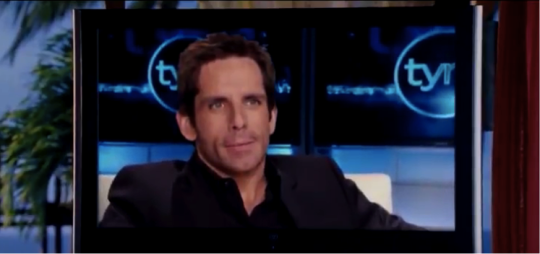
ZOOLANDER:

REALITY BITES:
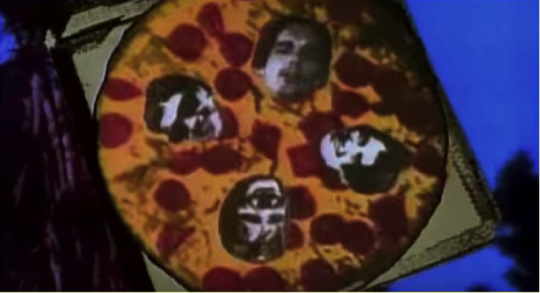
These shots of the TV screens inspired me, as each sequence was almost a low in their careers. The Tropic Thunder still shows an interview of Stiller’s character being humiliated. The still from Zoolander is at a low point in Zoolander’s career I which he gives up modelling and returns back home, only for his family to be embarrassed by the video shown above. The still from Reality Bites is of Lelaina’s documentary, which has been completely torn apart by the production company, a low point in her career. Therefore I decided to use shot of the screen to depict a low point in John’s career, shortly after he had been exposed, much like the characters of Stiller’s films. All the shots also feature the colour blue. Stiller’s films in general feature the heavy use of primary colours (Zoolander is a prime example) I wanted to do this within my film, so I created three different colour presets. I used yellow for John’s vlogs as they were light and sunny, blue for Ophelia’s vlog in showing the low-point of John’s career and red for everything else to act as a strong contrast between reality and what John’s ‘audience’ see and represent the two different sides to John.
I was inspired, not only by the colours in Zoolander, but also the primary colours used in Richard Ayoade’s Submarine which I have studied as part of Film A Level. Ayoade uses the colours to match emotion (e.g. blue = sad), which is something I achieved in my film.
SUBMARINE:
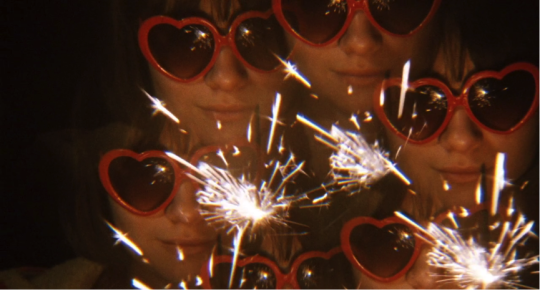
Here red is used to emphasise passion and warmth.
Genre
Stiller’s films are predominantly comedy, with the occasional comedy hybrid. I wanted to make a comedy with a focus on a melodramatic character. Stiller explores such characters, and even the stereotype of the characters, via soundtrack and the dancing along to it.
ZOOLANDER:
(Soundtrack: Wake Me Up Before You Go-Go - Wham)
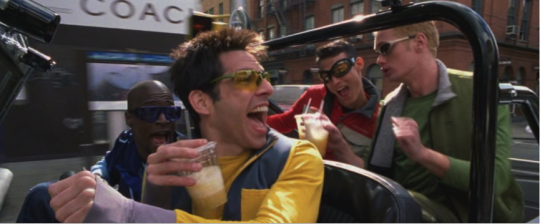
REALITY BITES:
(Soundtrack: My Sharona - The Knack)

TROPIC THUNDER:
(Soundtrack: Get Back - Ludacris)

Each film used a well-known song in a scene of dancing. In Zoolander, Stiller emphasises the stupidity of the male models and their dangerous lack of safety as they dance about whist driving. In Reality Bites, the dancing is used to depict a sense of carelessness and youth within the characters as a song they like starts playing whilst they’re grocery shopping. In Tropic Thunder, Tom Cruise’s character dances at the end when Tugg breaks out of his type cast by winning an Oscar.
HELLO GORGEOUS:
Soundtrack: (I Feel Good - James Brown (Big Skapinsky Remix))

In my film, I wanted my character to dance to the soundtrack to reveal his extroverted, fun and extremely confident personality. By choosing the song ‘I Feel Good’ by James Brown, I hoped to evoke a reaction from the audience, whether they feel they should dance along or laugh at John’s dancing. I also decided to use a remix from Sound Cloud, which was uncopyrighted, as many you-tubers struggle with finding such music and instead use a remix much like the one I featured. One audience member said they really enjoyed my use of soundtrack and how it changed from diegetic to non-diegetic when John wasn’t dancing.
I chose to use costume in aid of characterisation. I was inspired by Stiller’s use of costume in Tropic Thunder and Zoolander to create a costume exhibiting the flair of John’s personality.
COSTUME INSPIRATION:

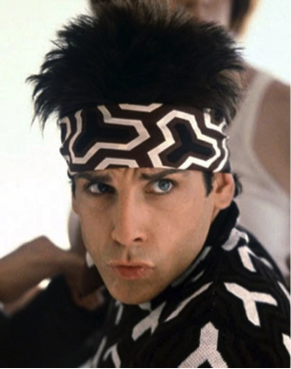
My original costume sketch vs. The final costume used.


Both of these costumes inspired me. The bold print in Derek’s costume and the opened shirt of Les Grossman both aided my design. Both characters are extremely self-invested and their costumes reflect that and I wanted to mirror that through my film.
Narrative
Ben Stiller follows a linear narrative in each of his films. Tropic Thunder being the only exception as it includes a flashback moment of when Stiller’s character was in a Forrest-Gump-style film. The narrative is similar to Chris Vogler’s hero model as a hero is established and then faced with a challenge, which they overcome. However, each character Stiller presents is clearly flawed. And whilst the characters come of age (in a sense), they do not really stray from these faults, making them questionable ‘heroes’. I wanted to create a rivalry, like the one between Derek and Hansel and Tugg Speedman and Kirk Lazarus, in Stiller’s films. They start off by hating each other but then they learn they need each others help in order to succeed. I created this in my film through editing. I wanted to show a clear difference between reality and the staged reality the characters create.
HELLO GORGEOUS:
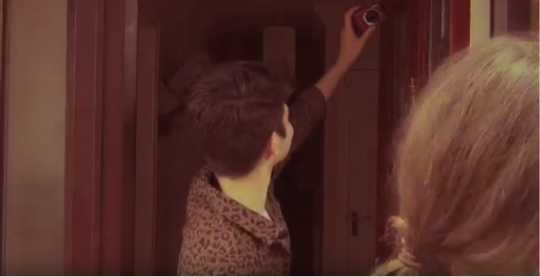

STORYBOARD:

I decided to use two different shots to illustrate the difference. I followed my storyboard closely at this moment.
I added a border so that it was obvious to the audience, aside from the drastic change of enthusiasm, which this was something John was filming. In Reality Bites, there are lots of shots designed to look like Lelaina is filming them, which then change to her in real life, so it is like we are watching the clip, rather than the real event.
REALITY BITES:
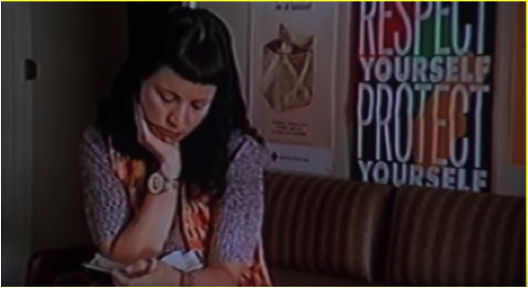


Style
Ben Stiller also shows hints of a postmodern style within his work, which I hoped to accomplish with my concept. The concept of my film is regarding the constructs the audience the audience can witness when Ophelia and John are ‘filming’ but they see the other side of their personality when they are shown as their true selves, whilst the audience within the film only sees the construct. The idea of vloggers is that they are supposed to be real people who show audiences their lives, yet I wanted to show these people leading almost a double life because of the ‘media personalities’ they have created. Goodbye Lenin, by Wolfgang Becker and another film I have studied as part of A-Level Film Studies, weaves a similar web of lies which the protagonist deals with and this also inspired my film, as I wanted the conflict to lie within the superficiality of the characters and their relationship.
I was also inspired to feature a cameo within my film, much like Stiller does within his, yet I was unable to work with Ben Stiller on my film, so I decided to make John have a ‘crush’ on Ben Stiller and used a poster as a prop, showing his influence over the character, as well as the film.
HELLO GORGEOUS:

Critical Approaches
Even though I decided that Stiller’s films are probably more genre than art, and that he needs to make more films to be considered as one of Sarris’ auteurs, I could be seen as the auteur of my film, as I had an even larger role to play than Stiller did in his films directing, editing, writing my own film, as well as thinking of all the elements of mise en scene, cinematography and sound, suggesting I had a colossal impact in the production of my film.
Influence of the Course
Studying Digital technology has also made me aware of the changing media landscape, such as the influence of YouTube and ‘vloggers’ upon the younger generation and society in general. Digital technology has made it easy for any to make content, and platforms such as YouTube make such content accessible for everyone. While this has been most useful in my filmmaking experience as I shot on a DSLR and uploaded it to YouTube, many critics of digital technology argue that the art of film has been lost, due to such digital technology. This also links back to the genre vs. art debate regarding Stiller’s work, as he produced a film as a result of digital technology, which was probably elevated by his own celebrity status, as well a those starring in the films. So the lower film standards, such as vlogging (and some even argue Stiller’s films) have affected the quality of films.
My filmmaking techniques have also evolved since my coursework last year. I experimented with a soundtrack and dialogue, I also took more time to edit the film and explore different transitions and cuts, such as the montage I decided to incorporate. I also experimented with different styles of filming, such as screen recording and having the actors film the ‘vlogs’.
YEAR 1 COURSEWORK:
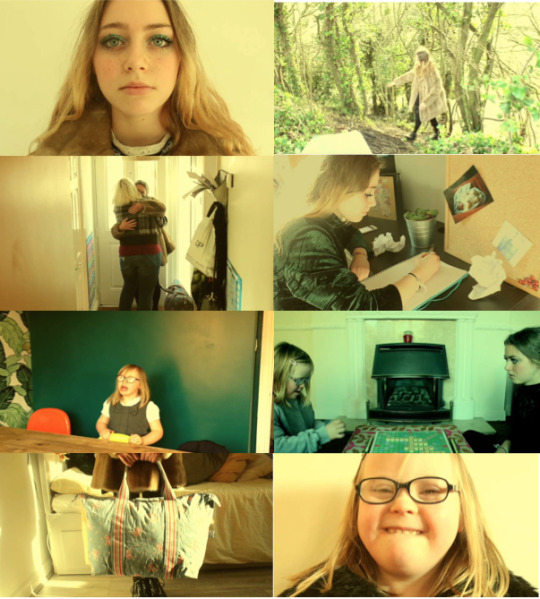
YEAR 2 COURSEWORK:

Conclusion
I think I have produced a successful piece of work which achieved what I had set out to do: make a film which has been clearly influenced by Ben Stiller. I have also explored the micro technical features much further than before and have created an artefact with interior meaning and clear style. I have been inspired by the course and have been influenced especially by Ben Stiller’s filmmaking. When looking back at the auteur debate, via Sarris’ theory, I have fulfilled much of his criteria, as I have tackled the production and distribution of the film by myself, taking on all roles (except actor), similarly to Stiller in his films. However the lack of films I have made and digital platform I have used may cause people to question such a title.
WORD COUNT (including Headings and Subheadings) – 1,892
BACK TO CONTENTS
0 notes